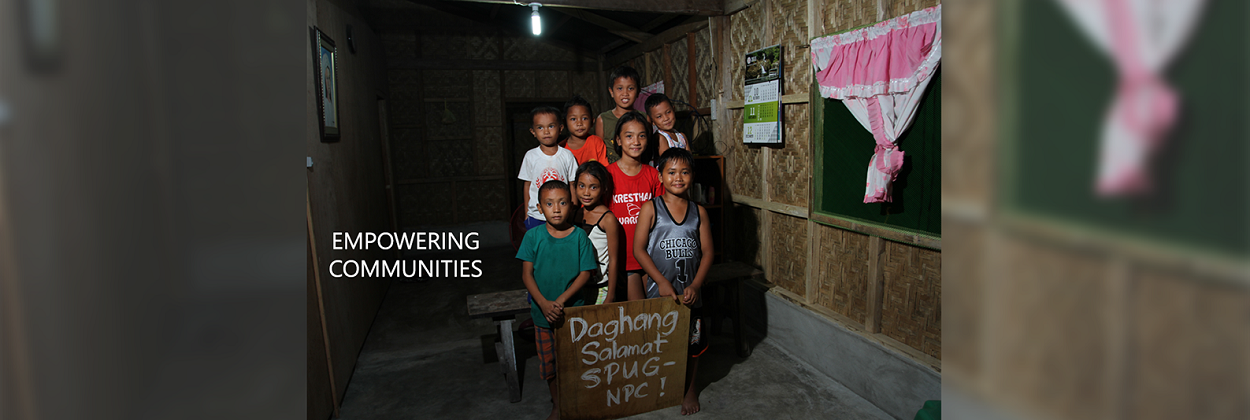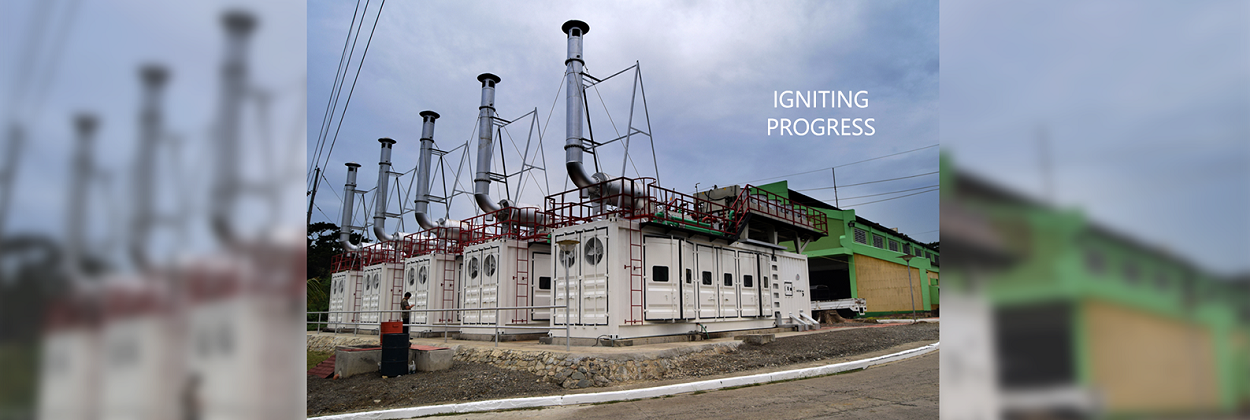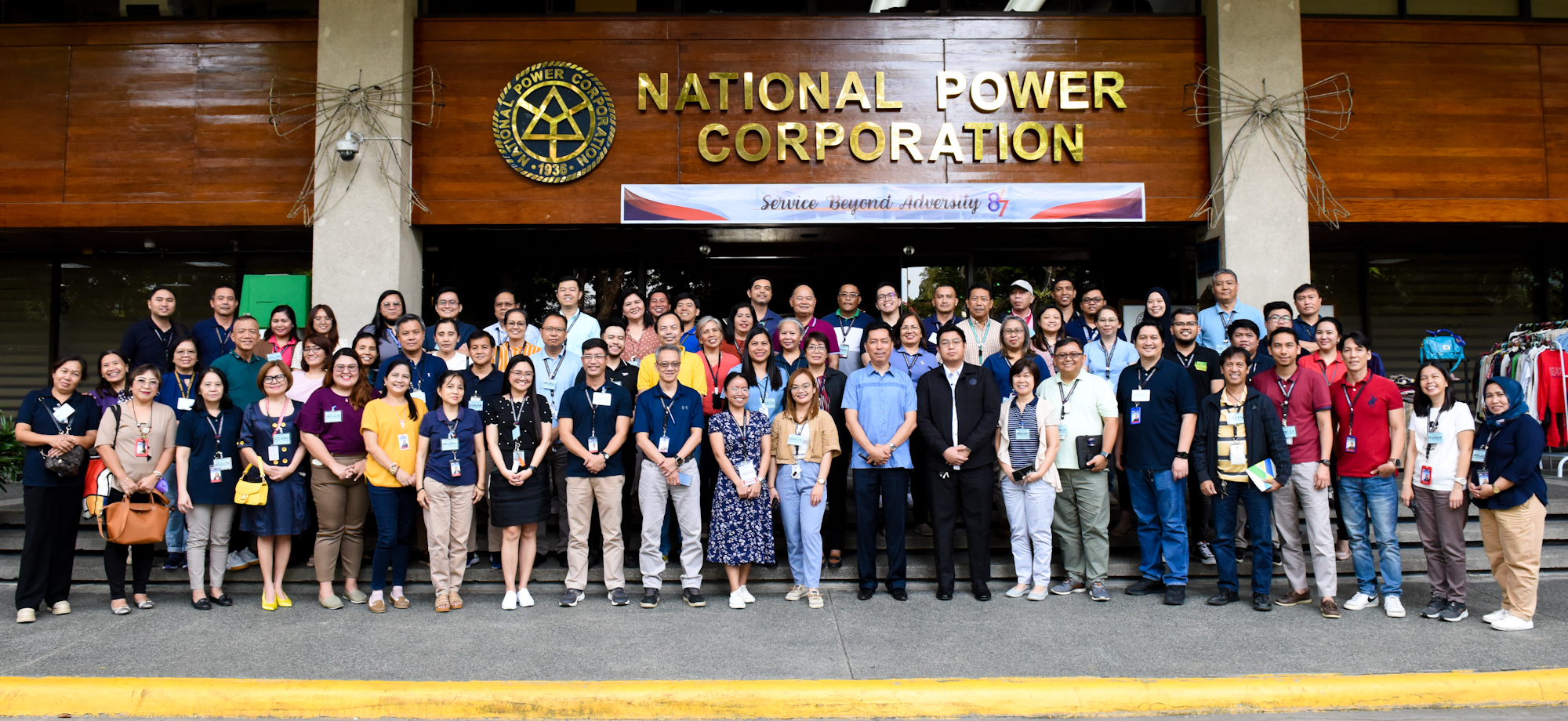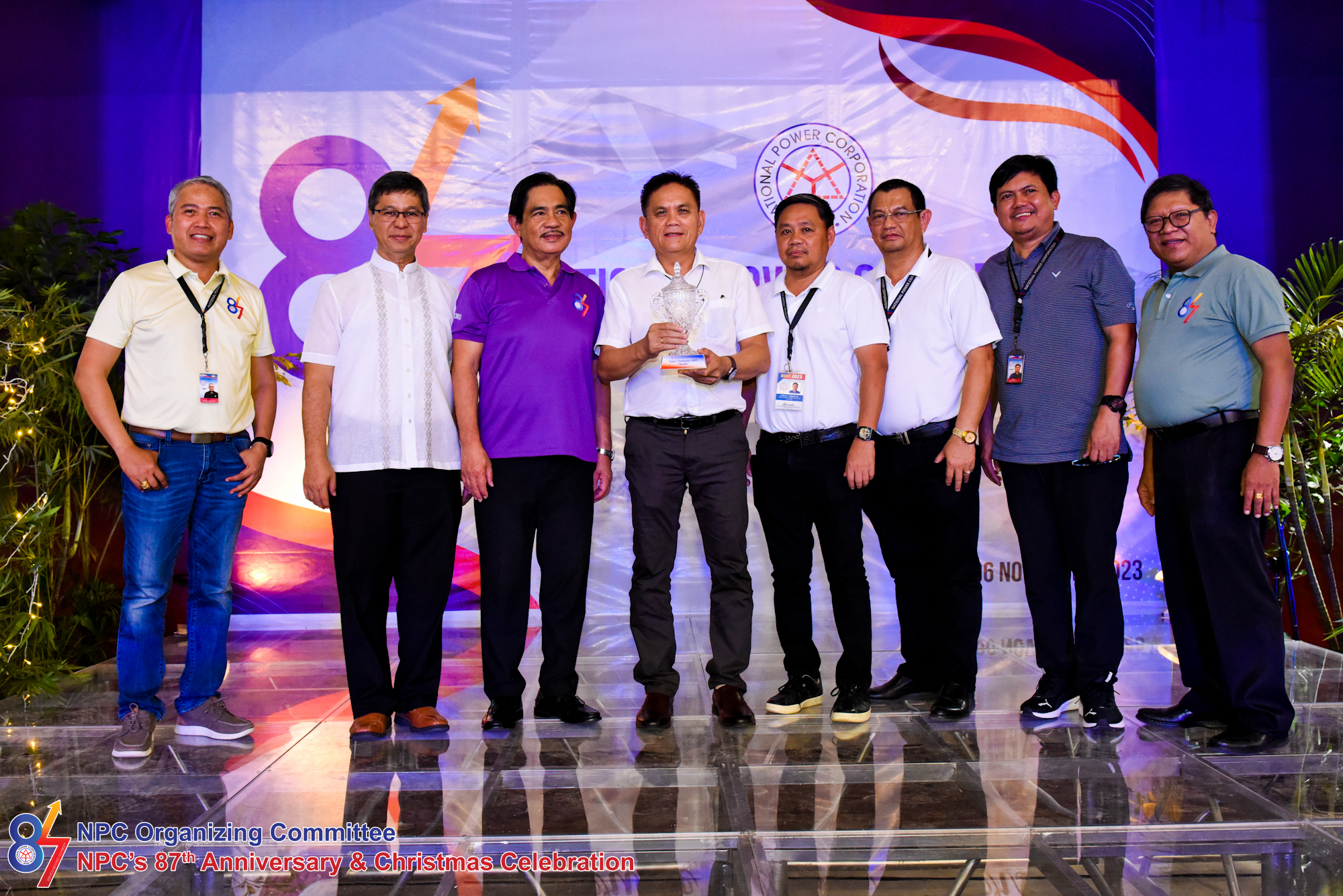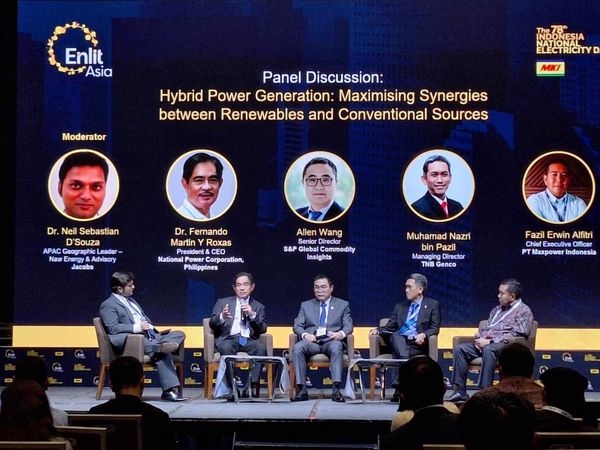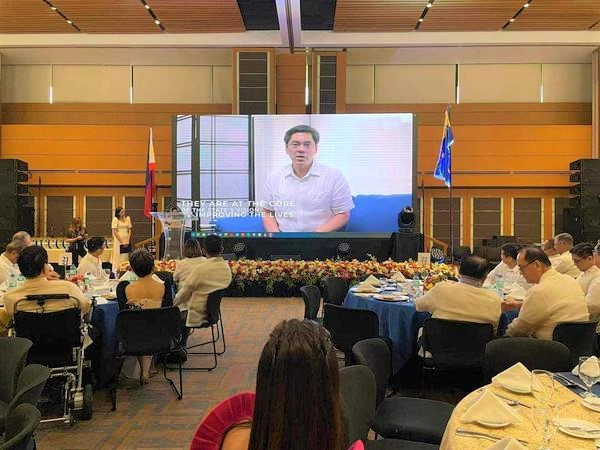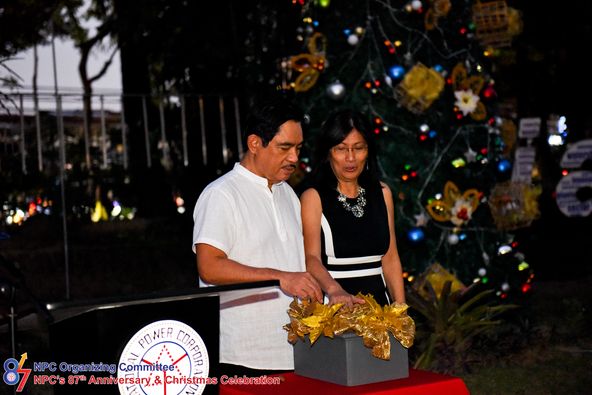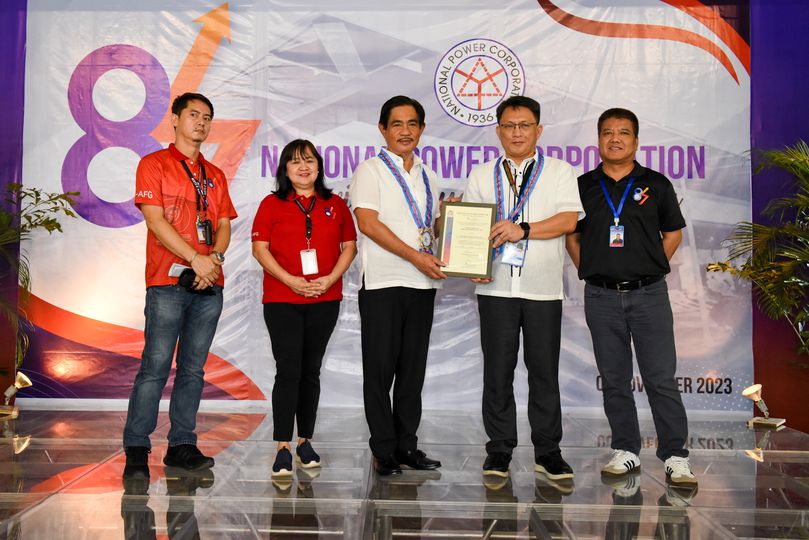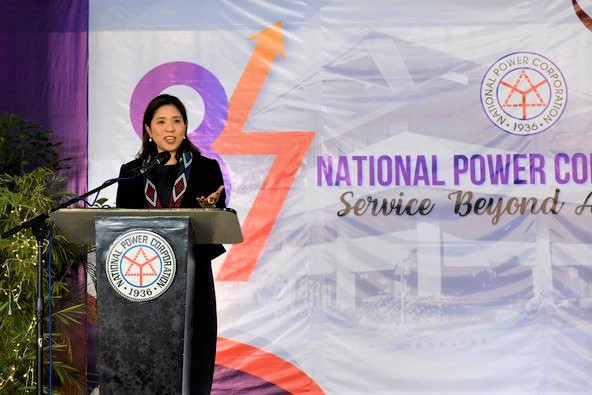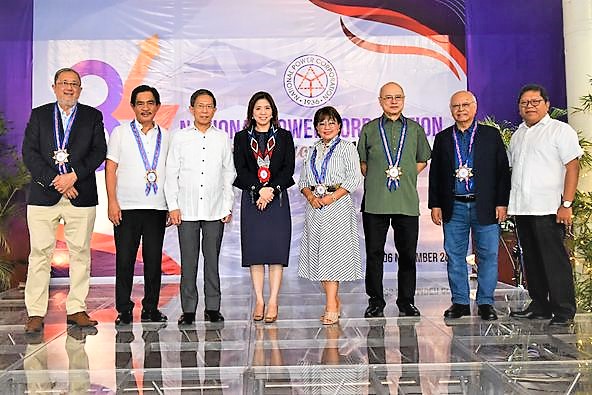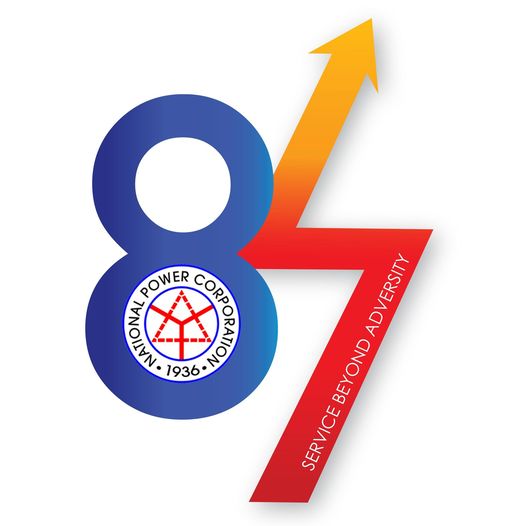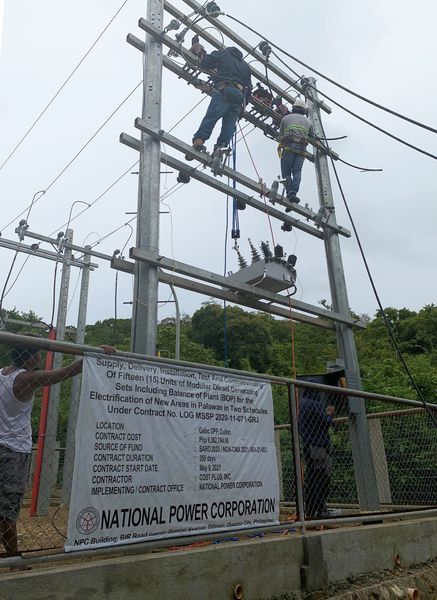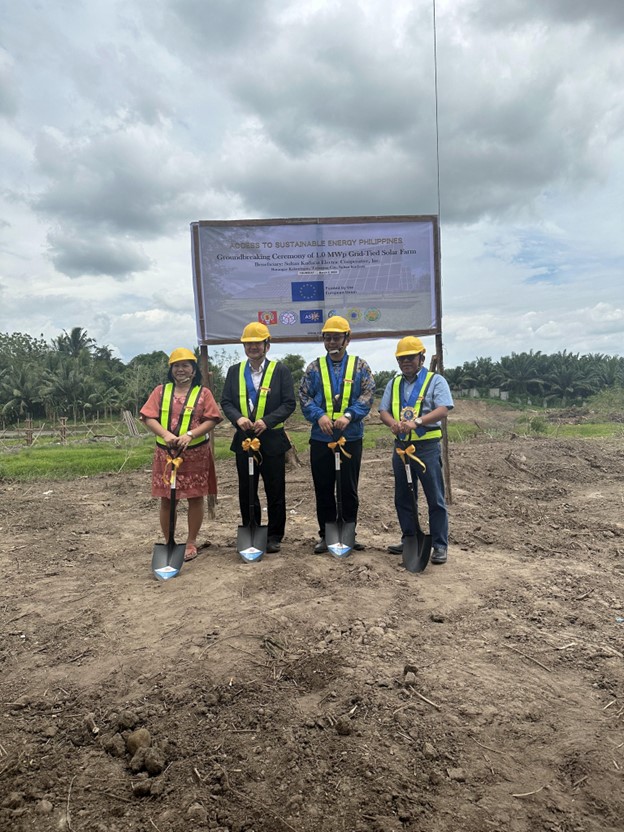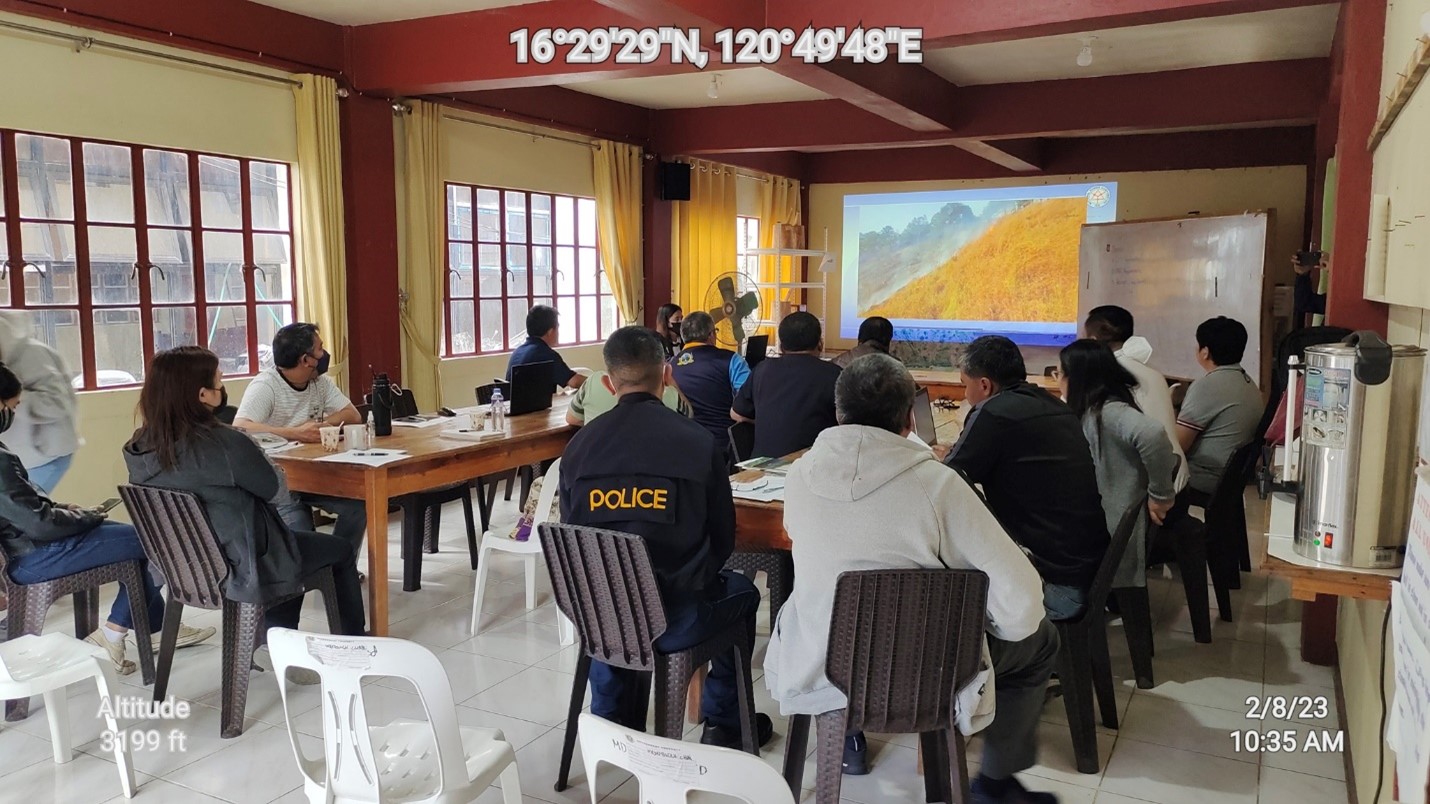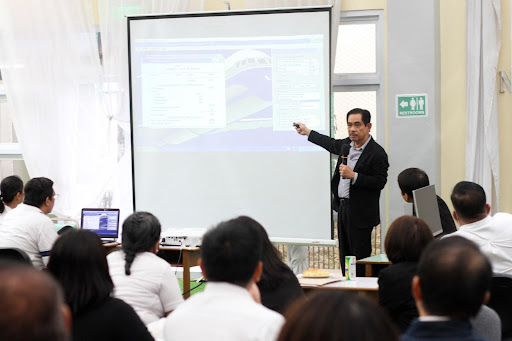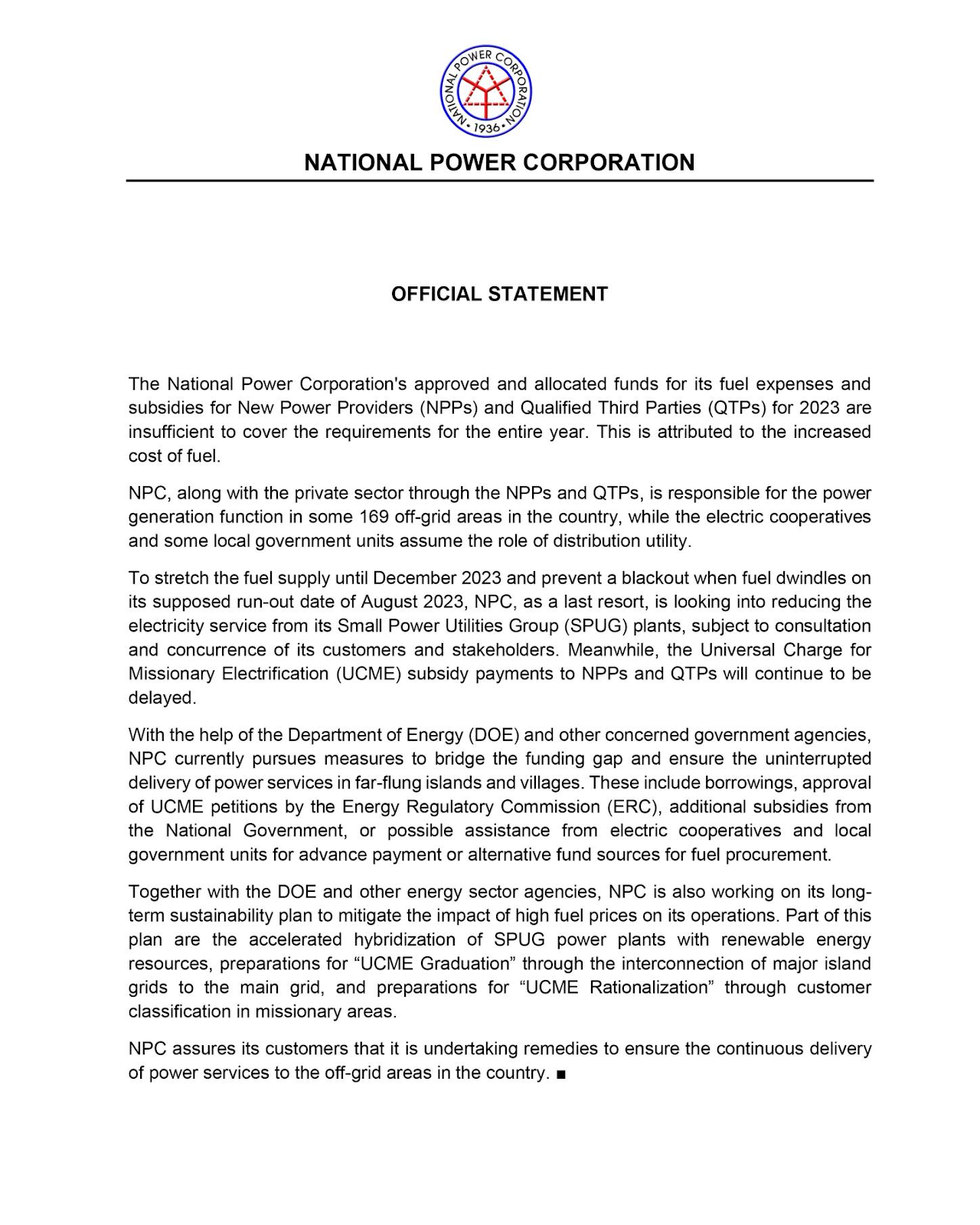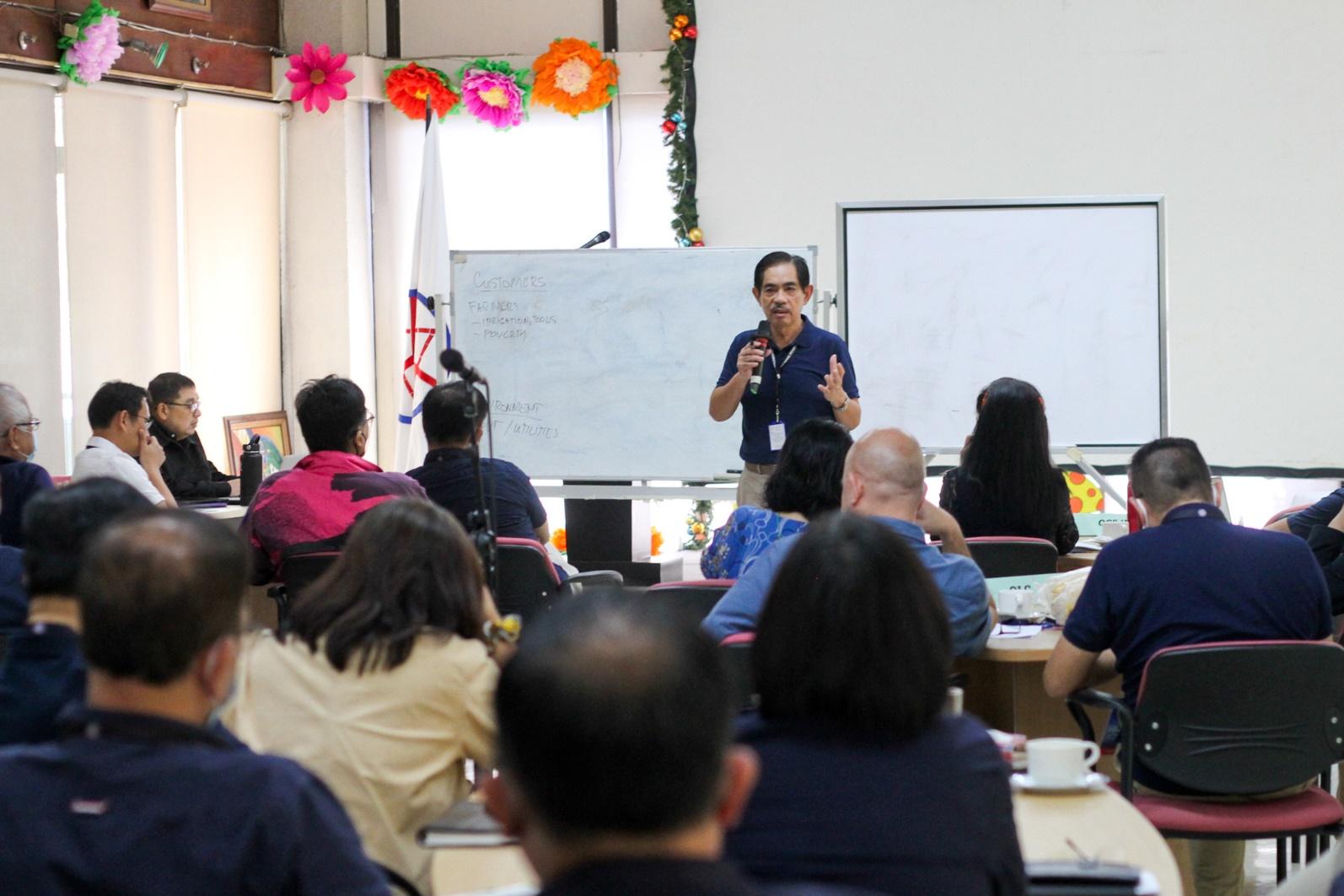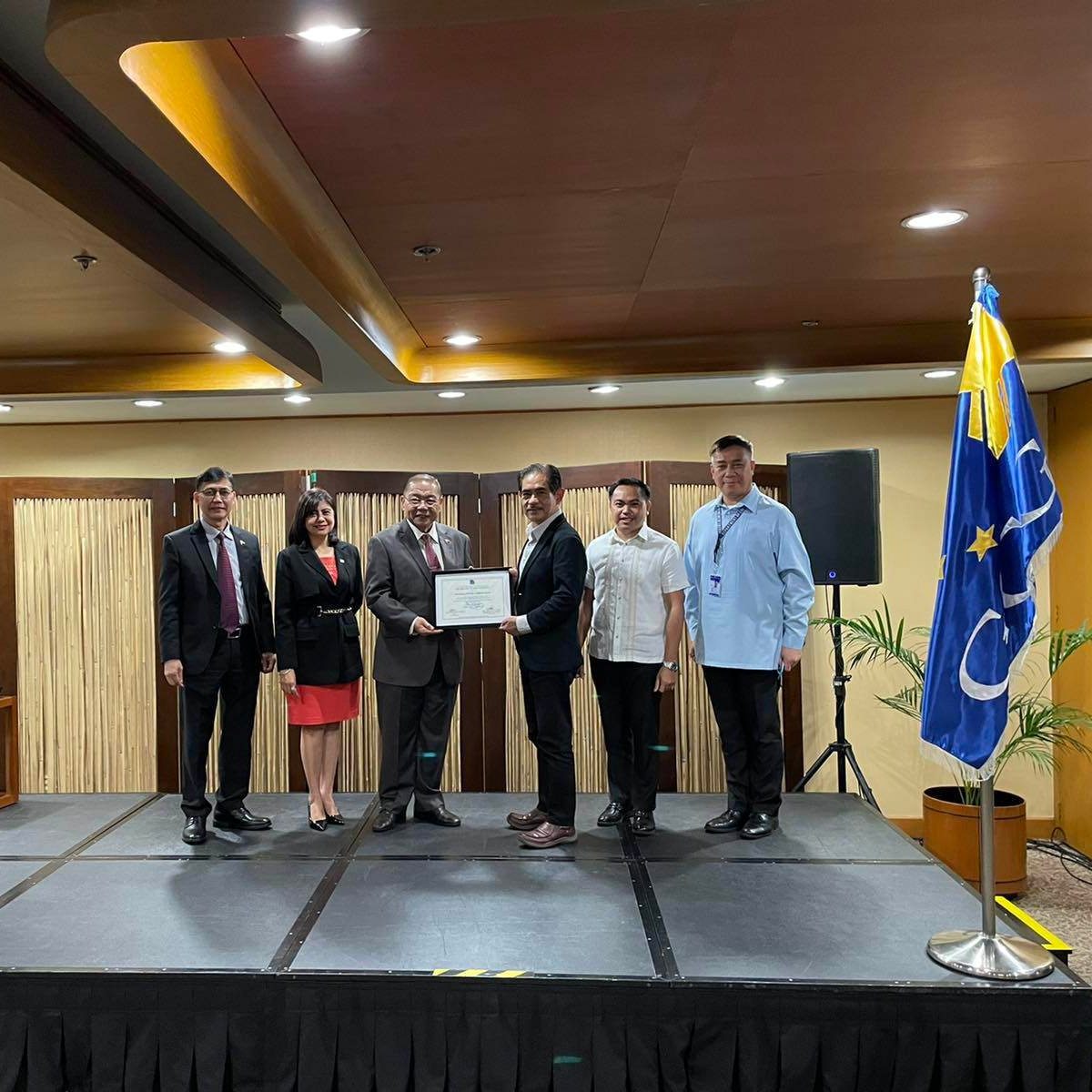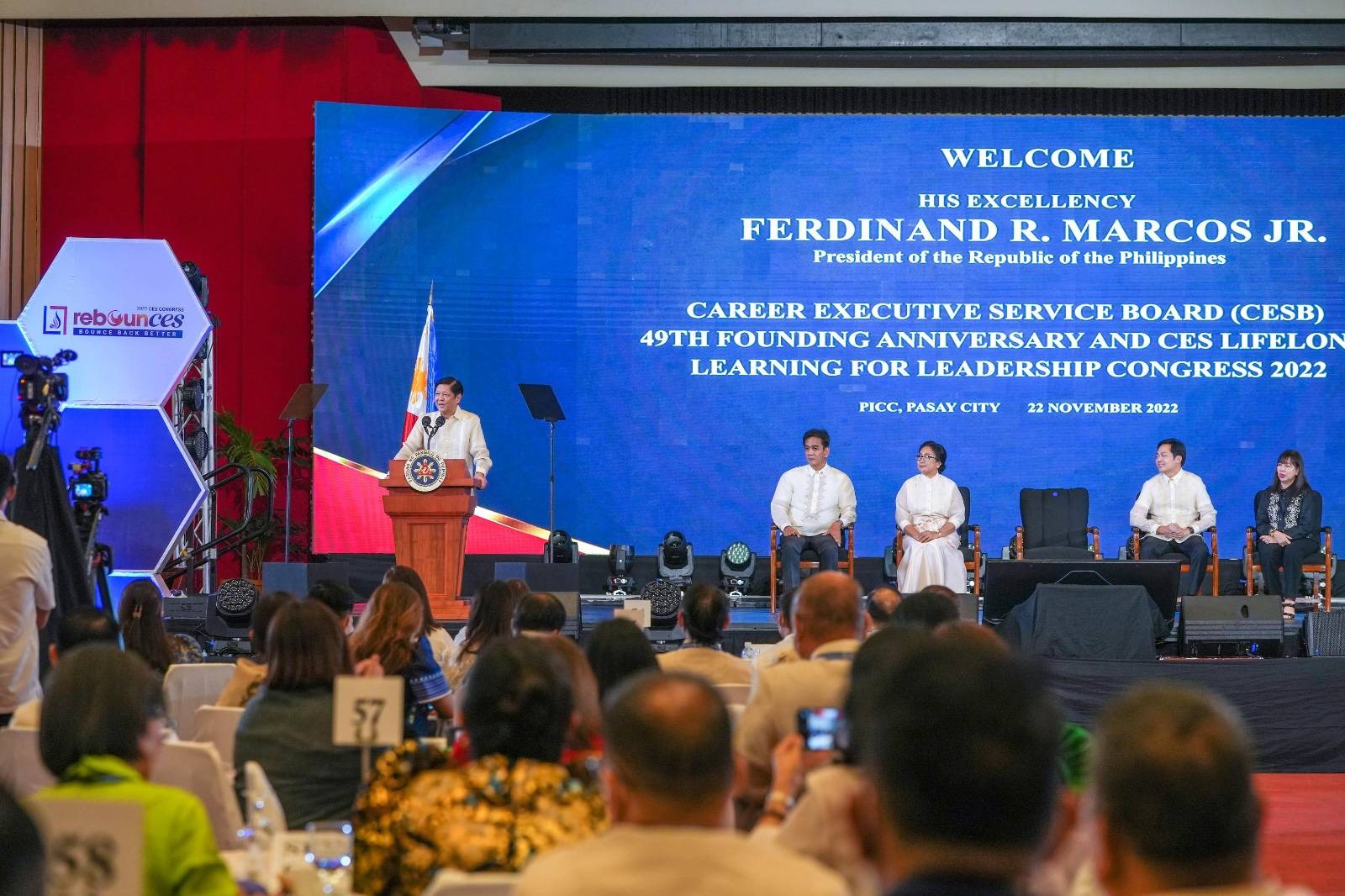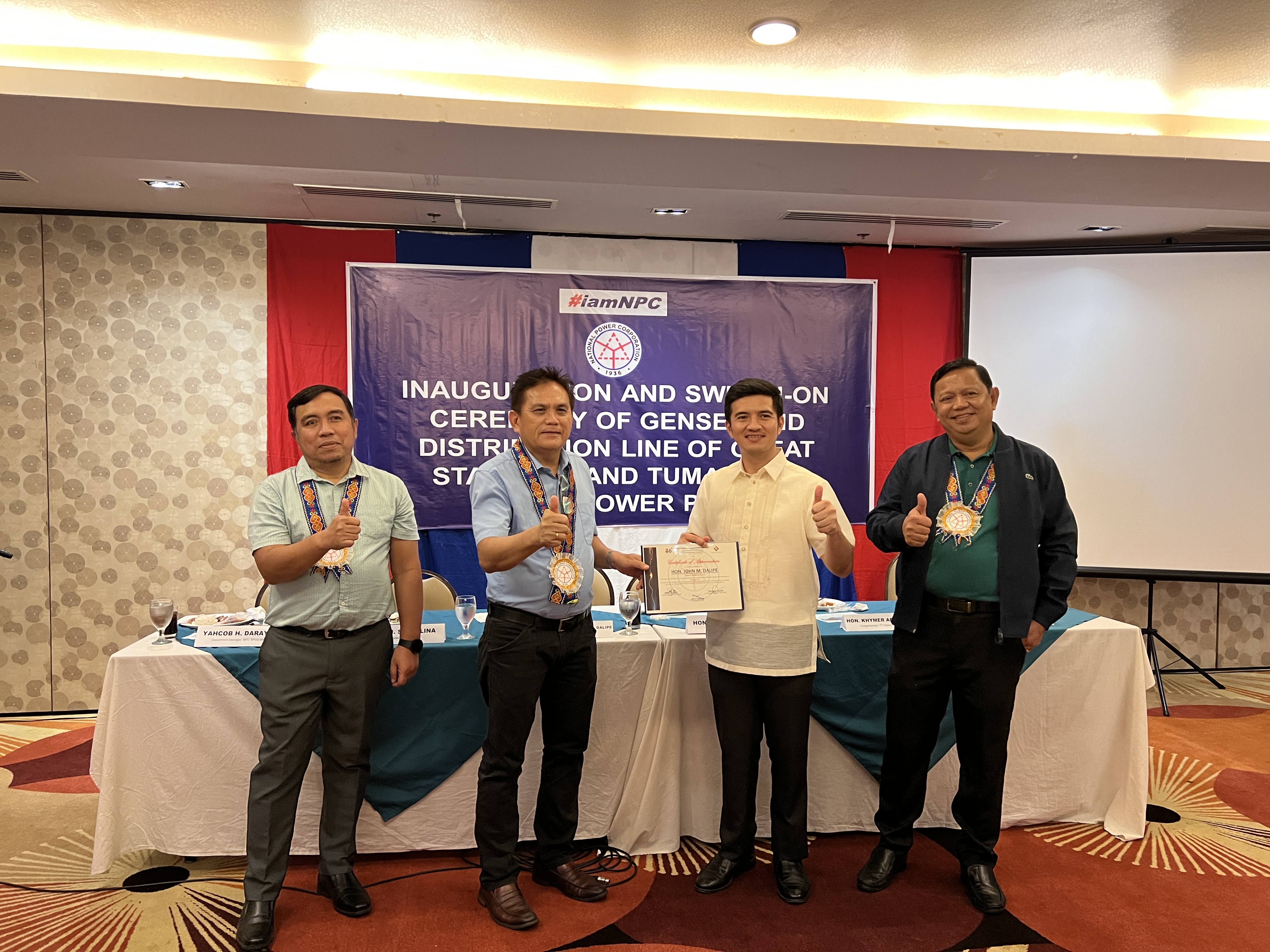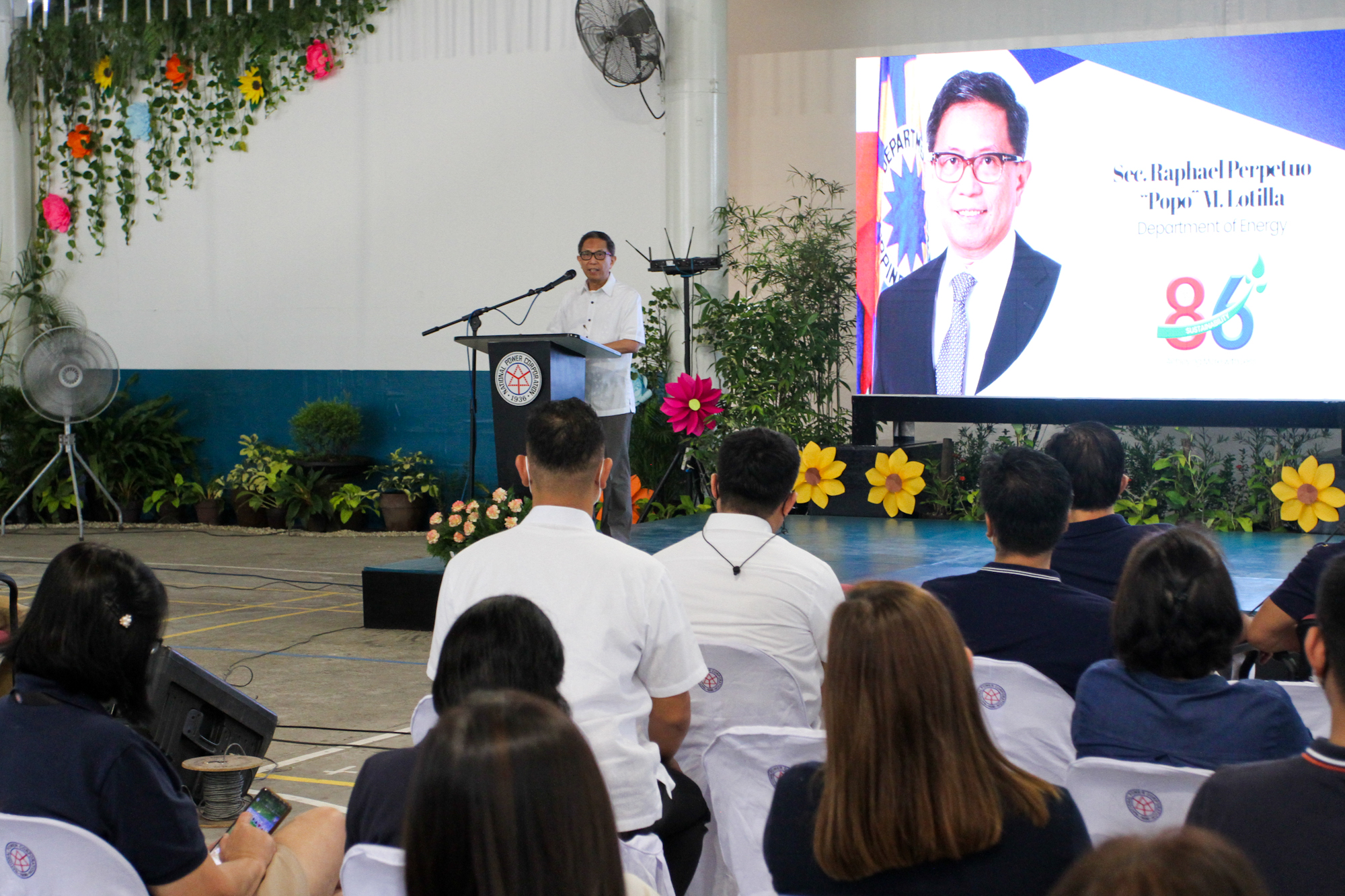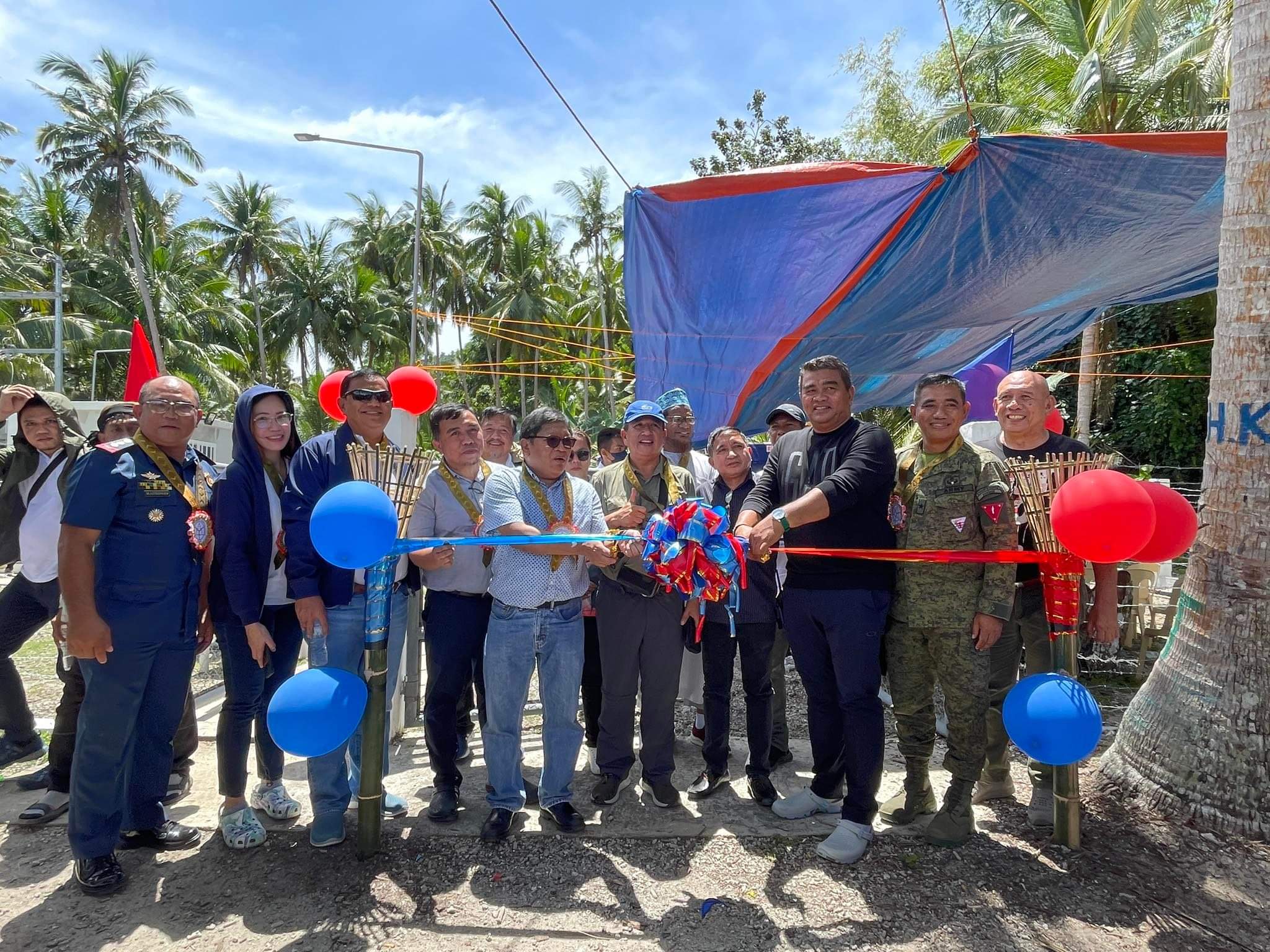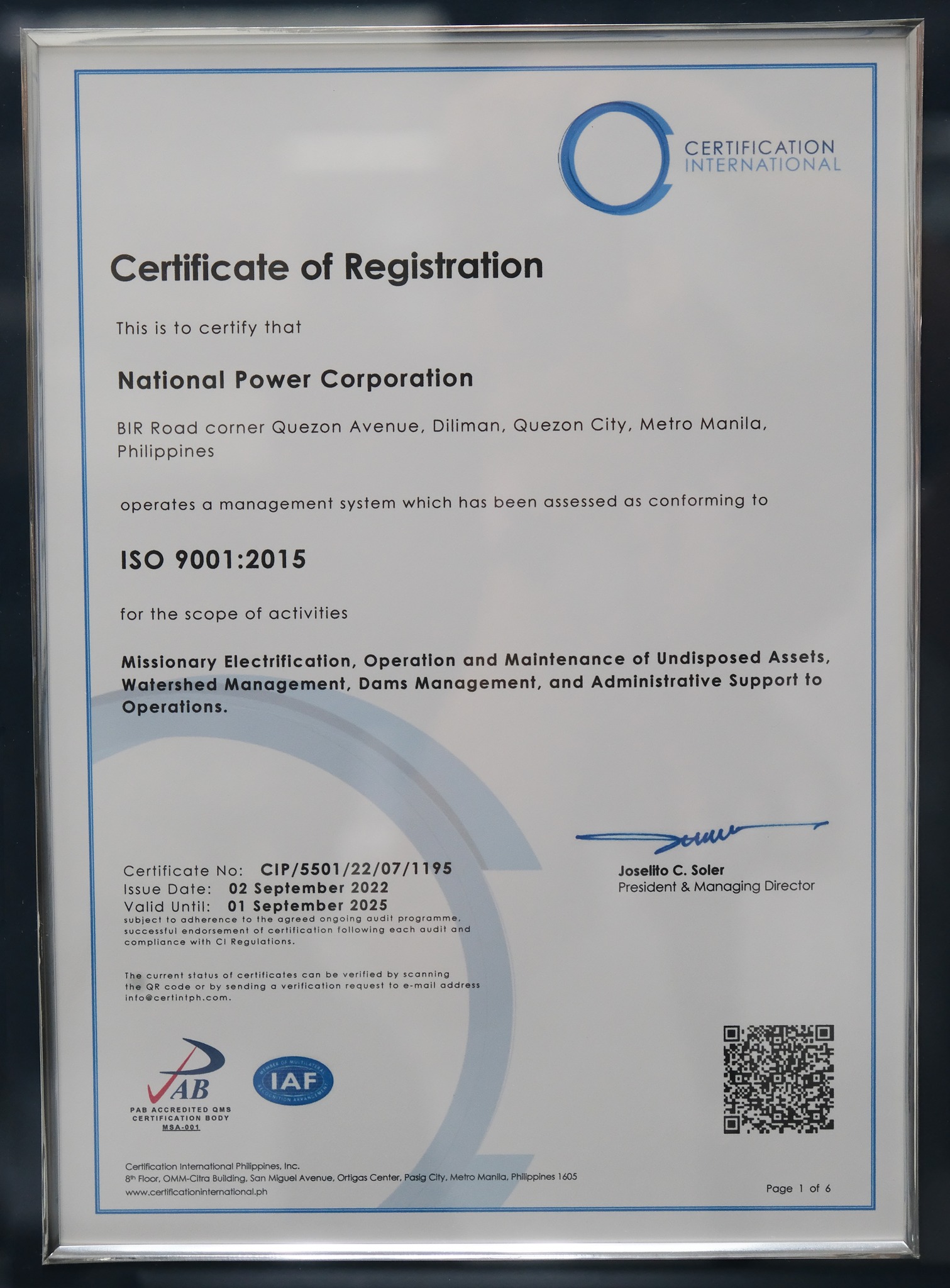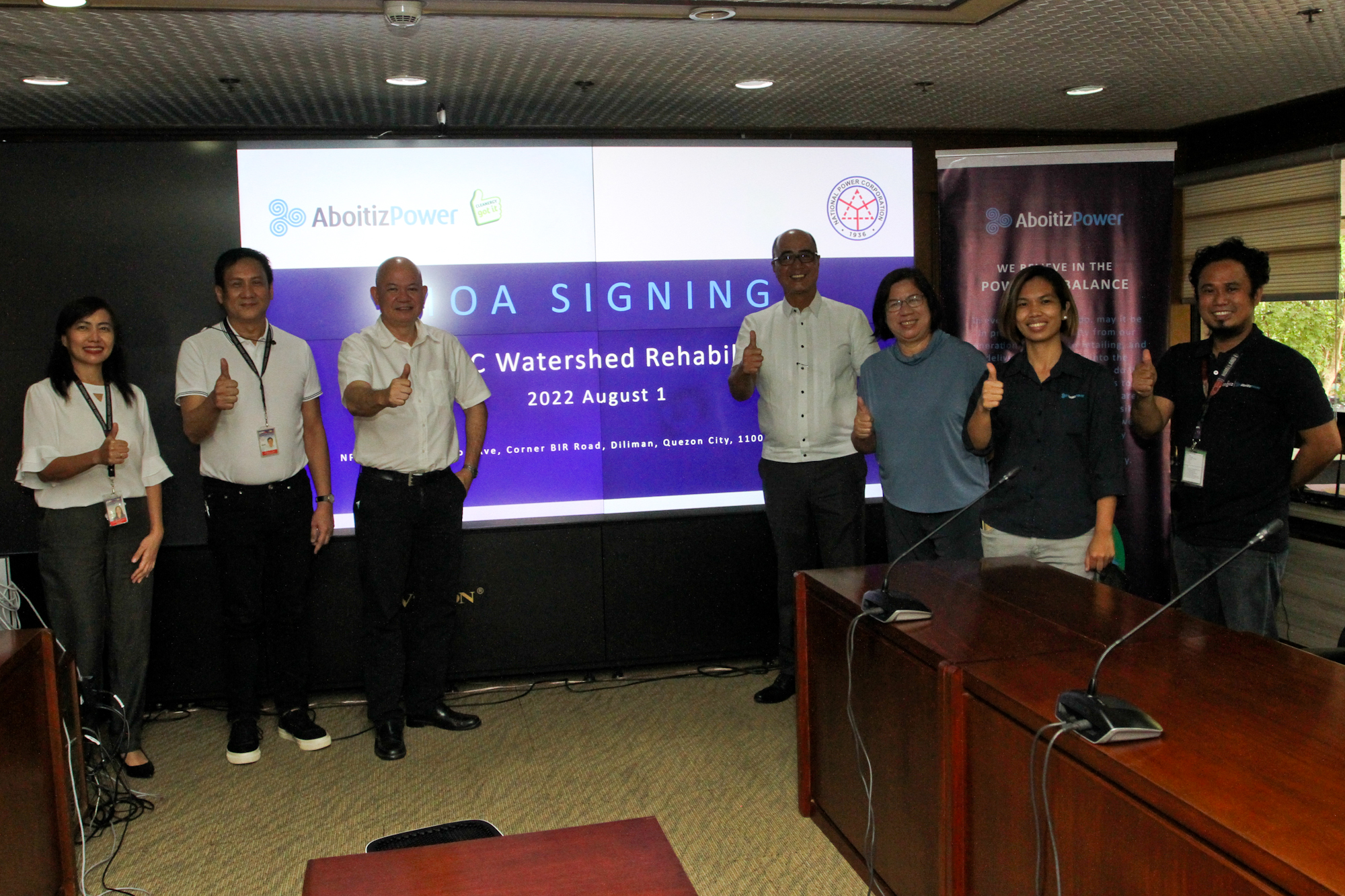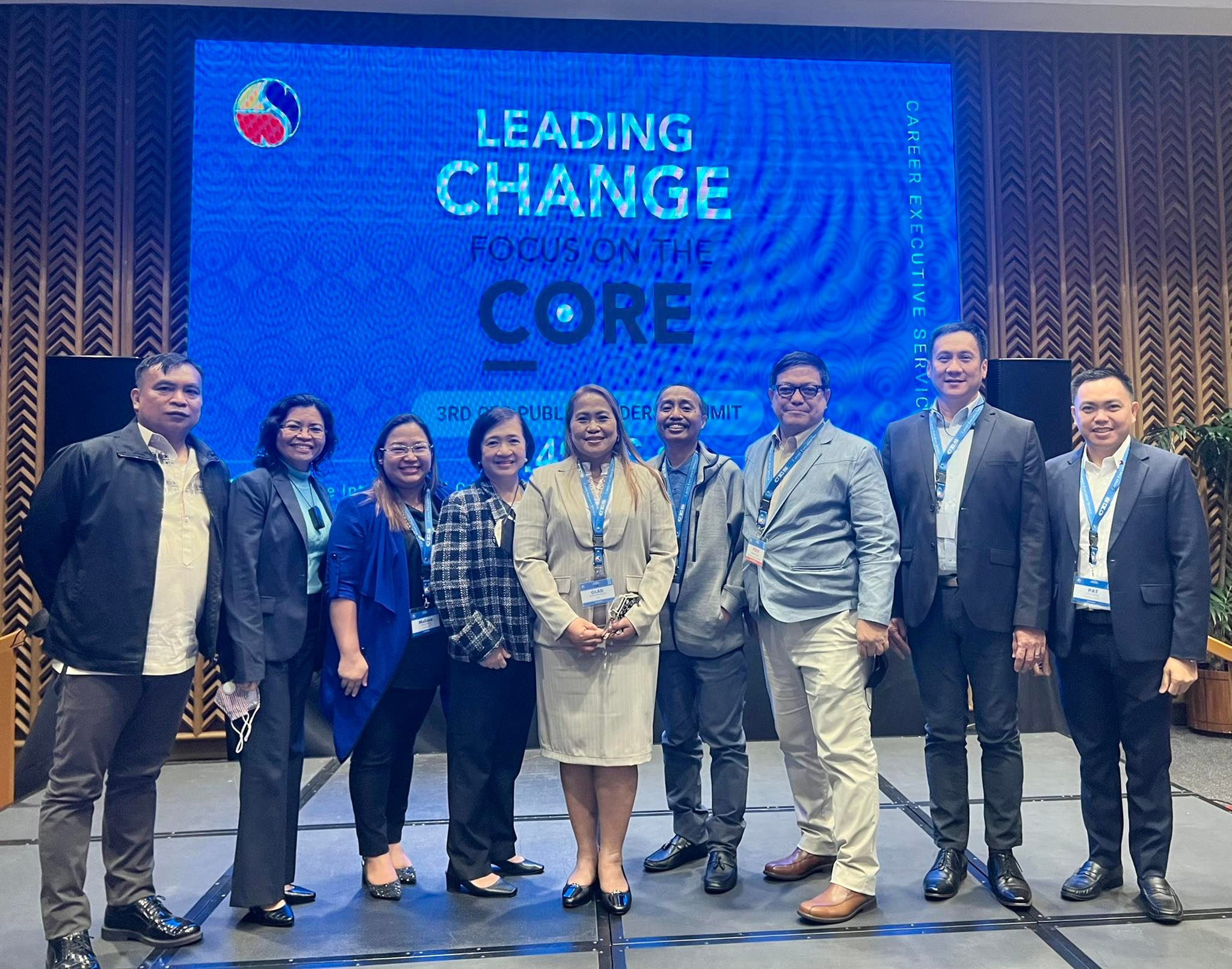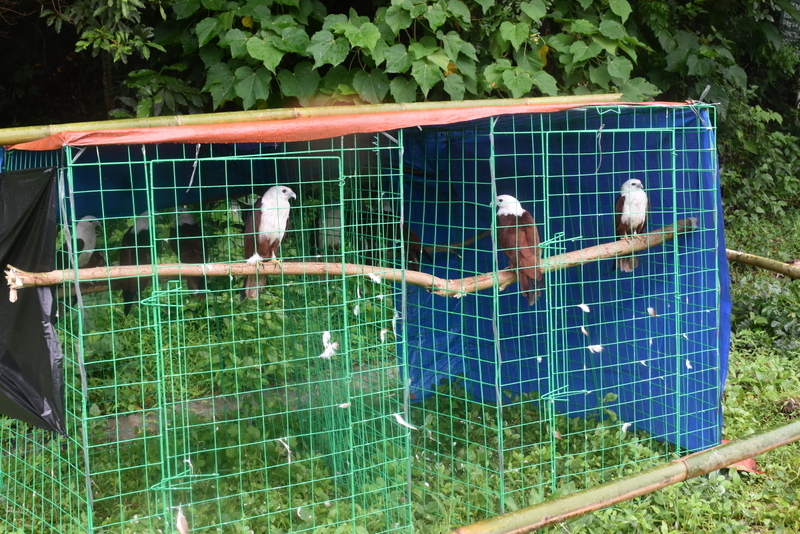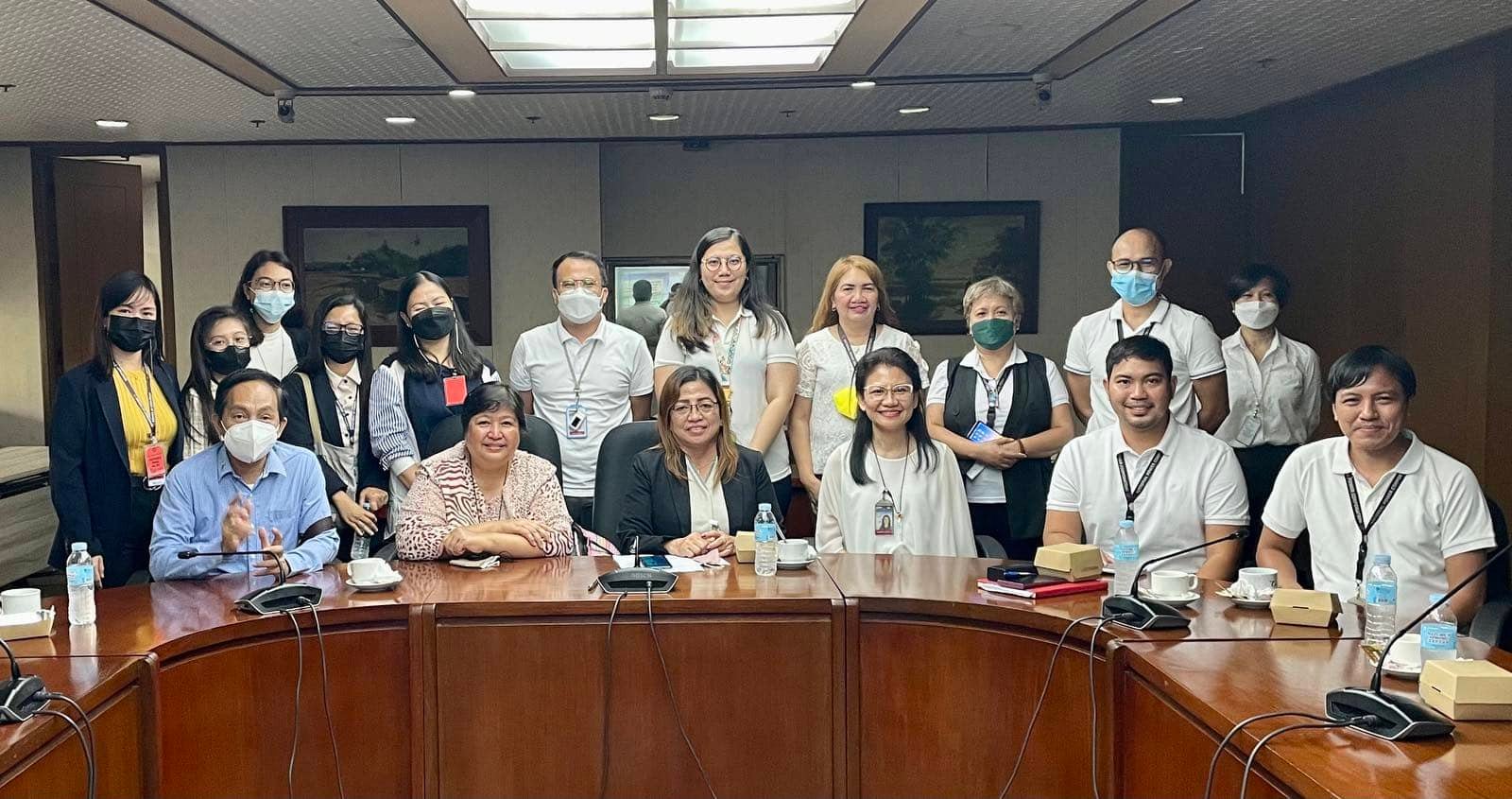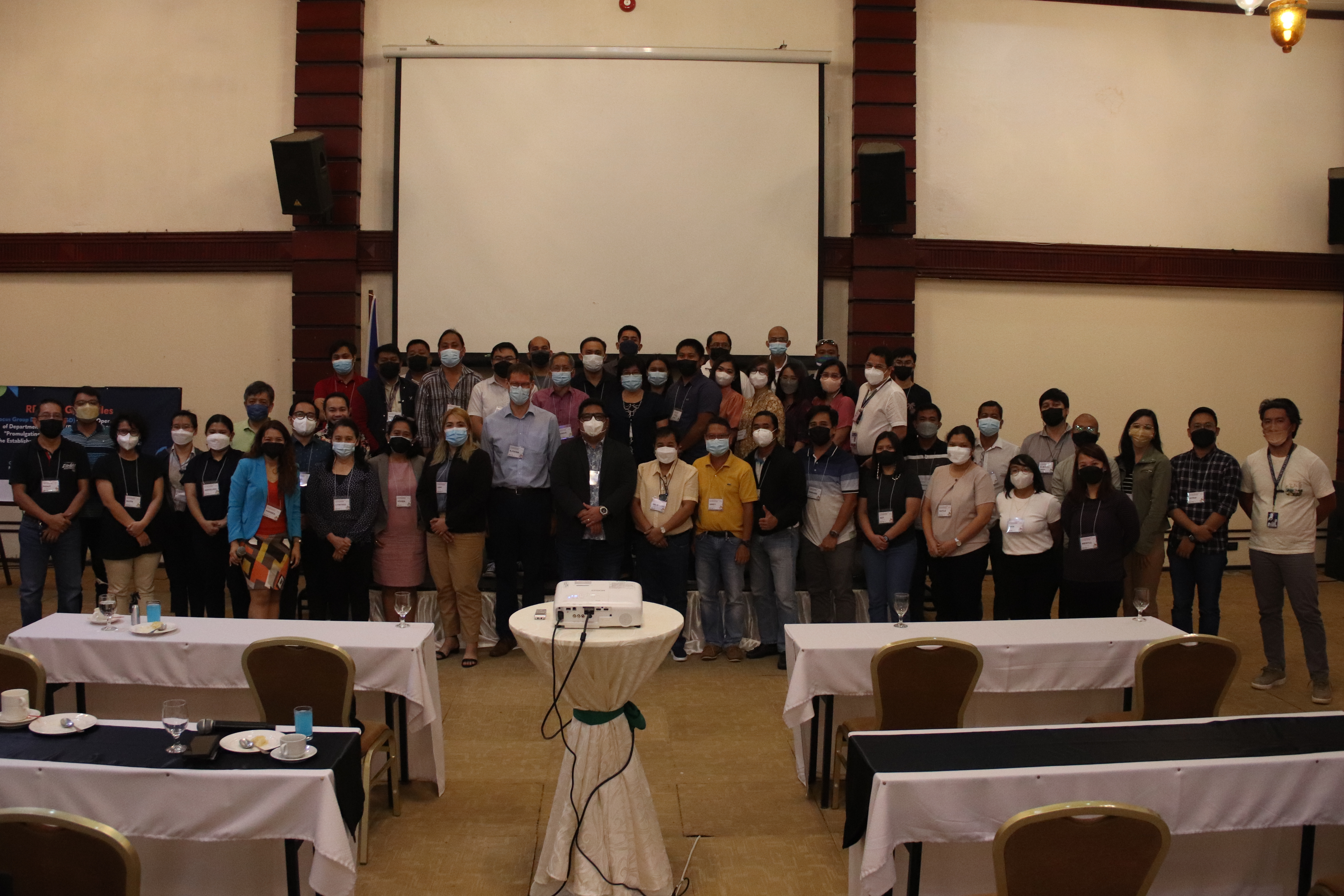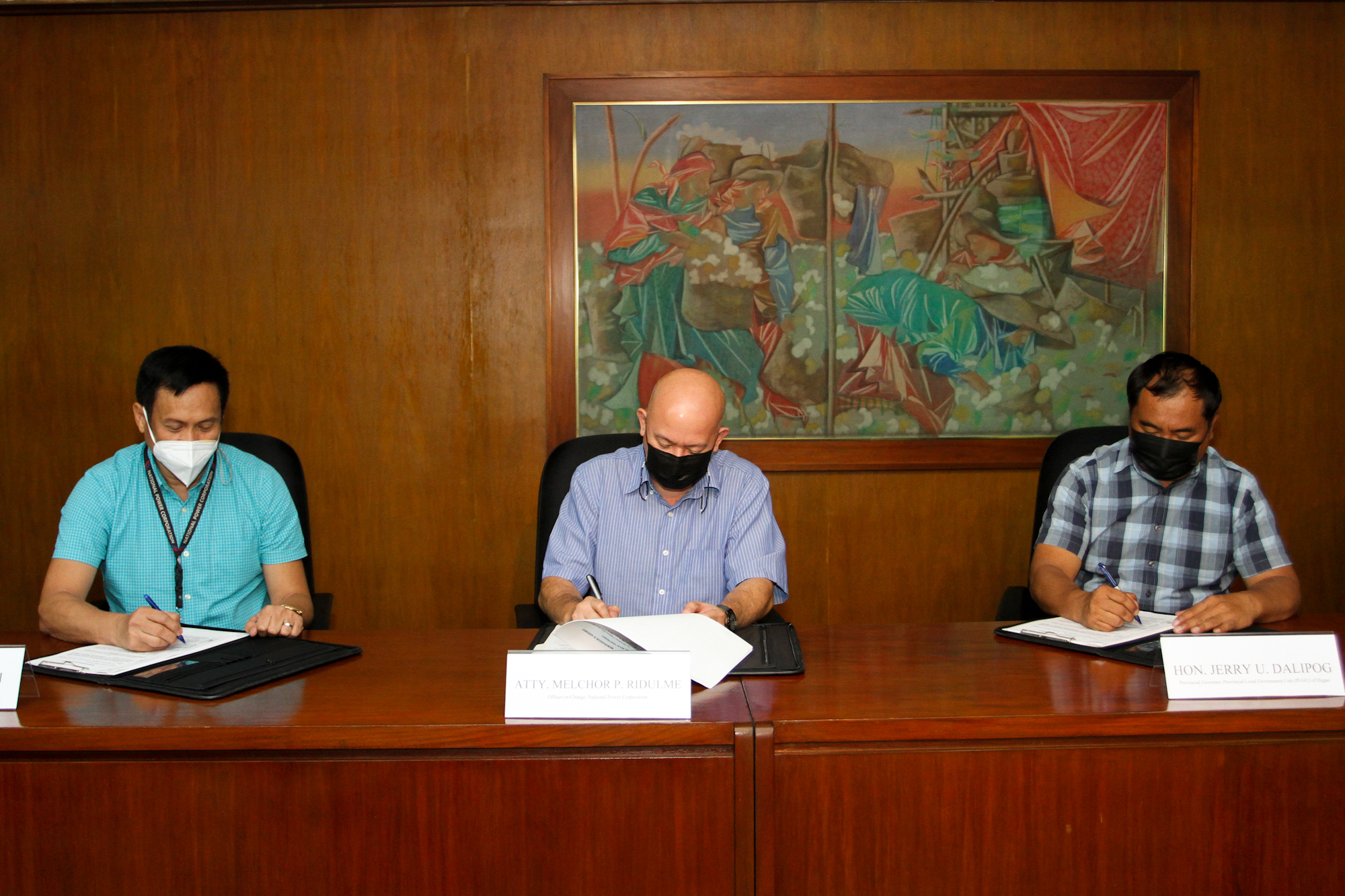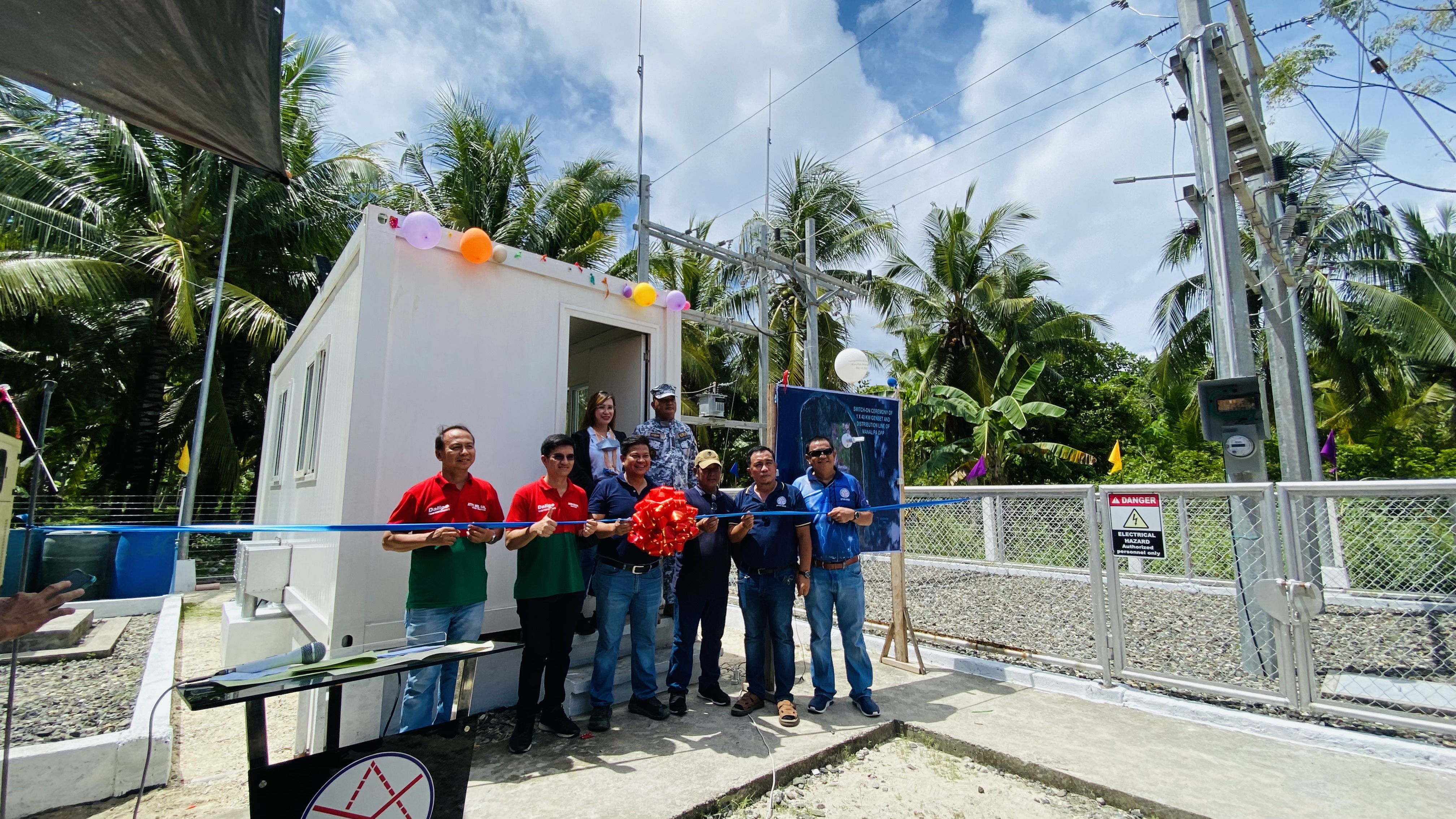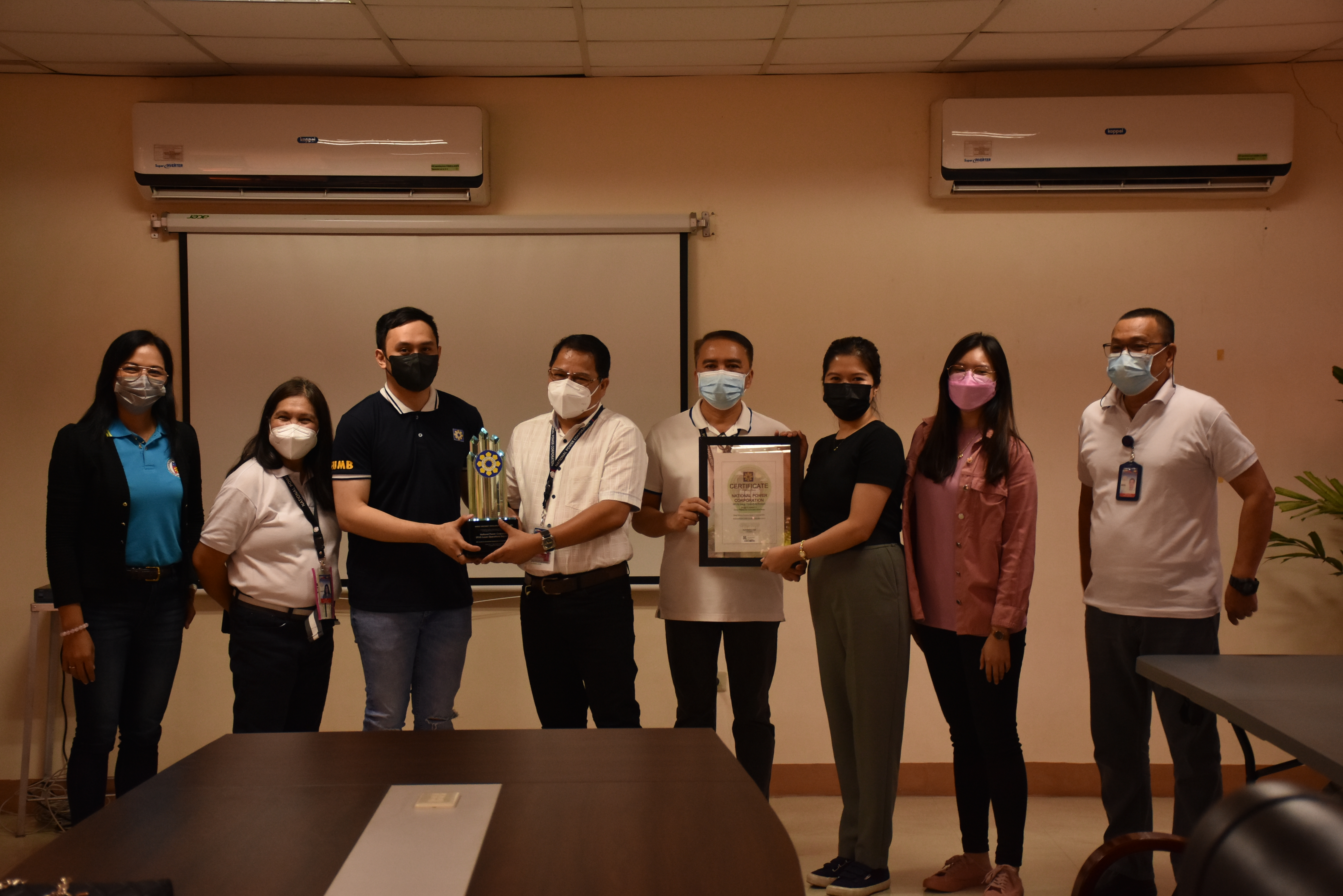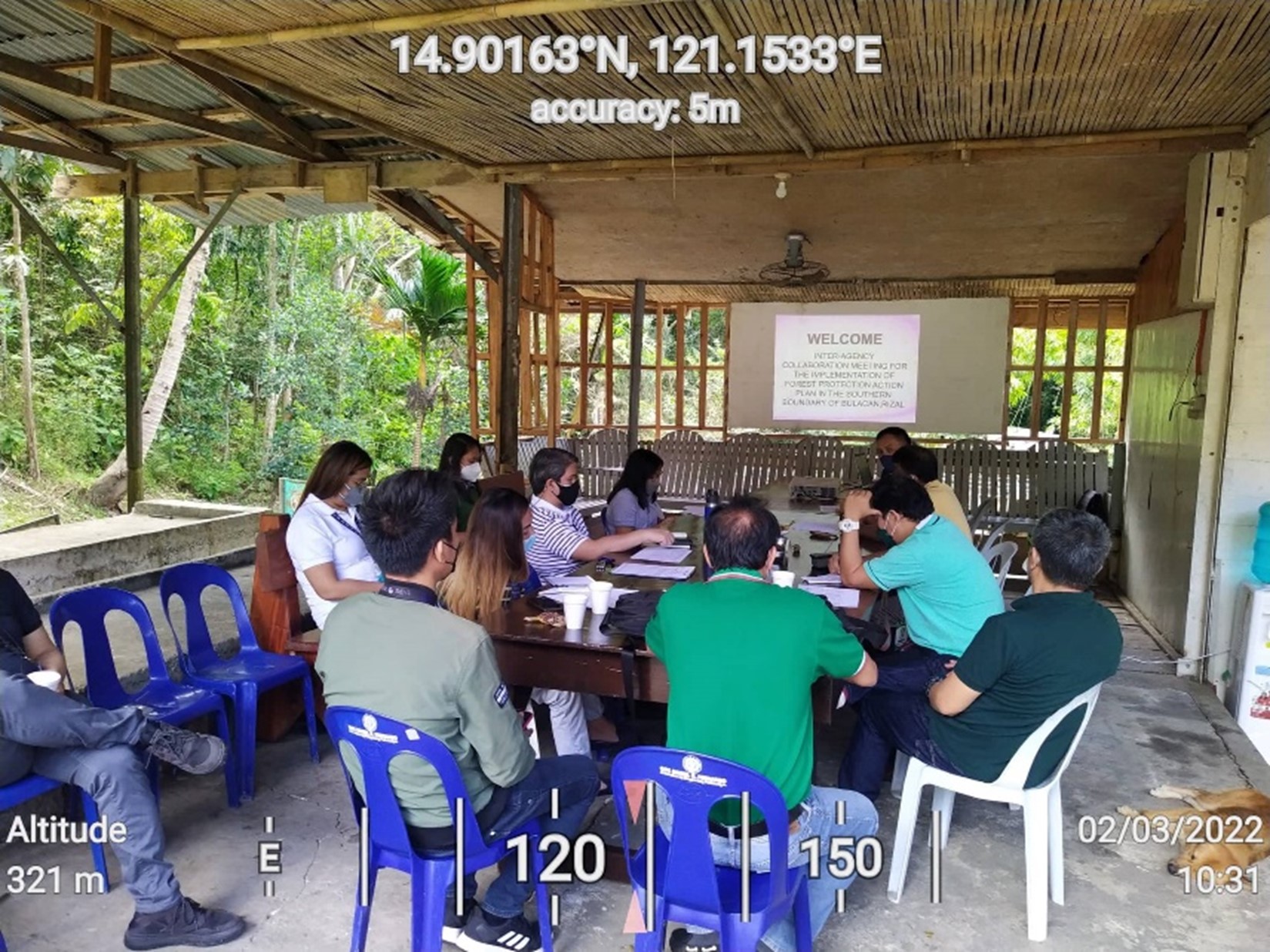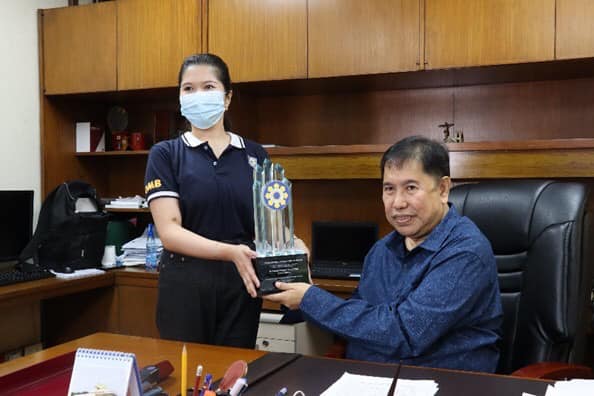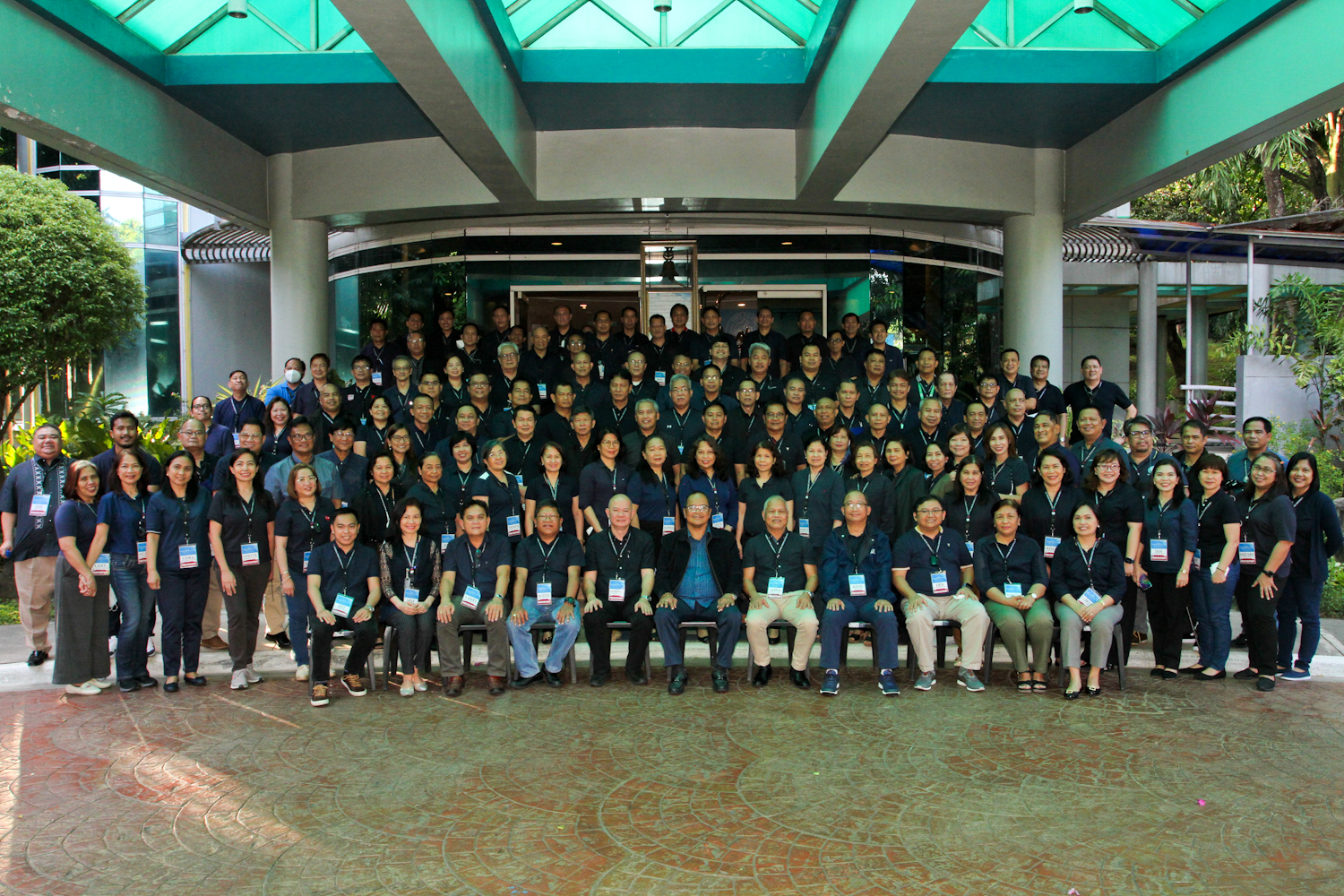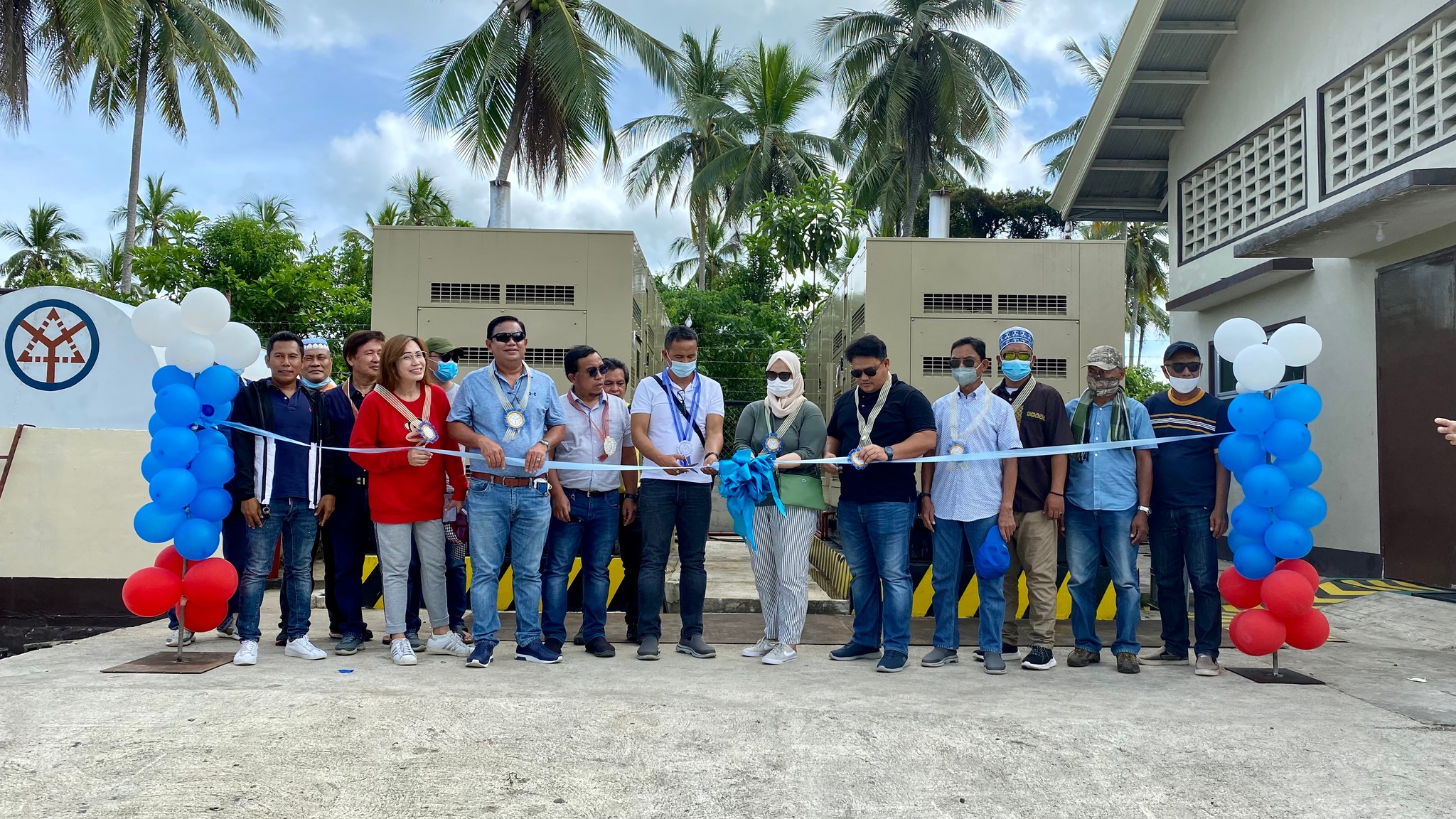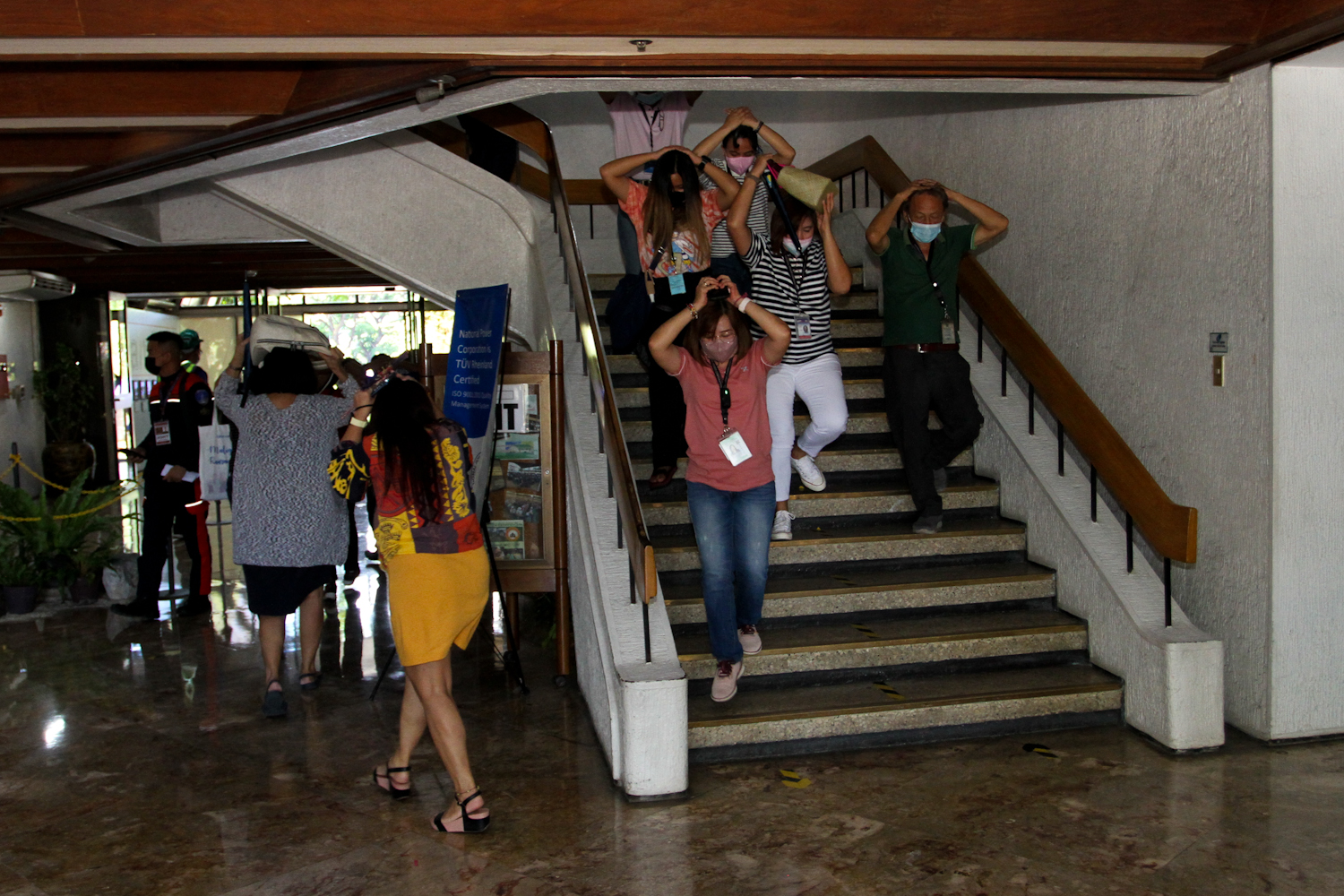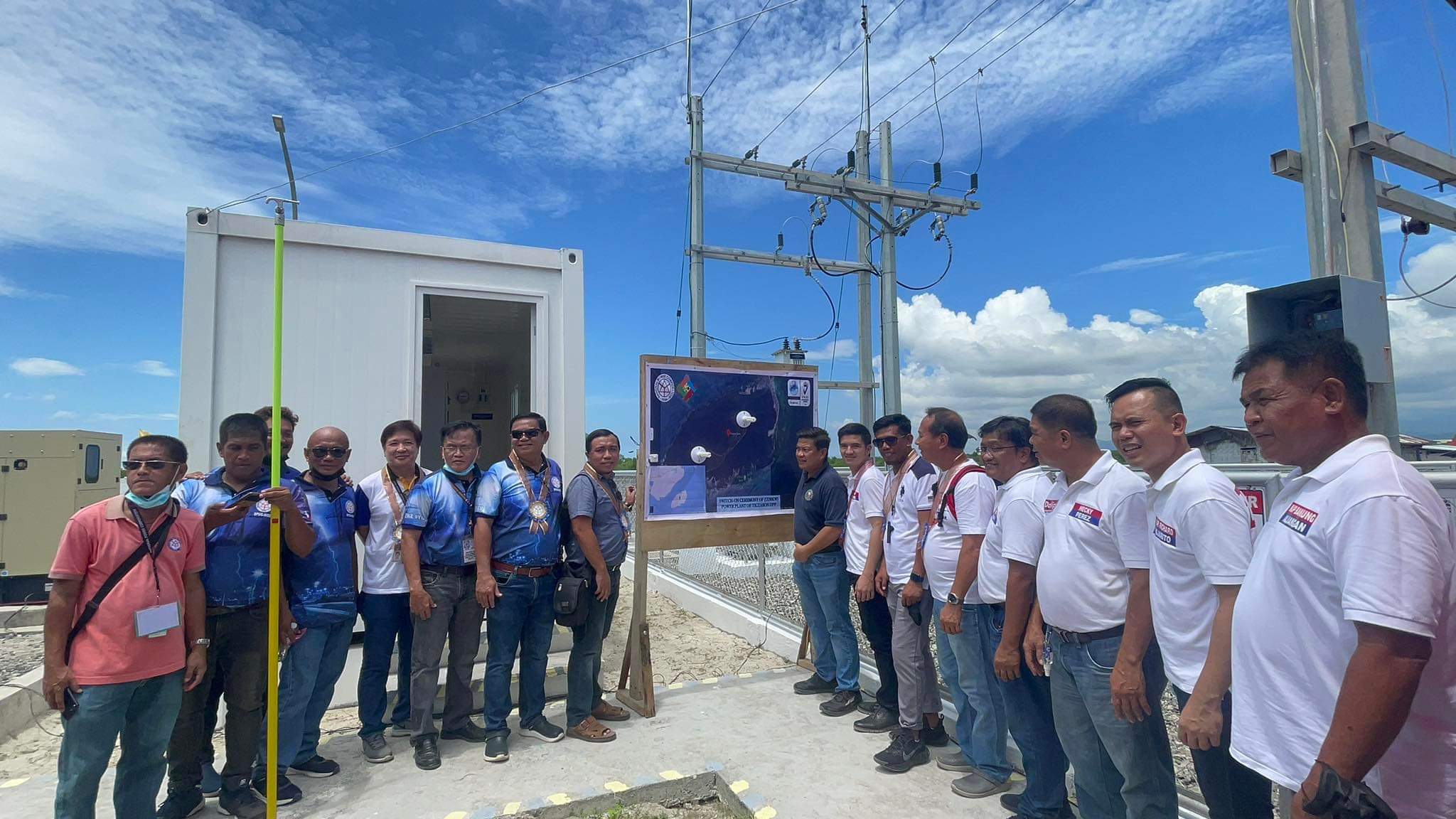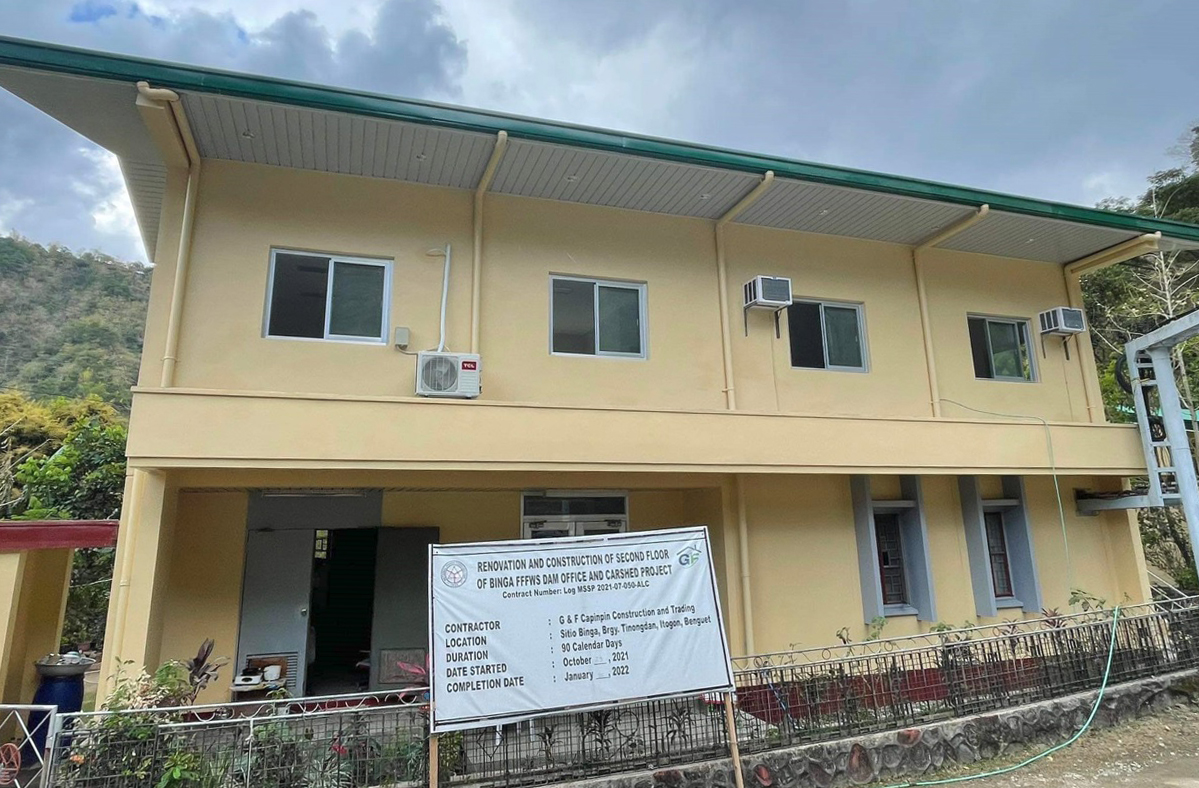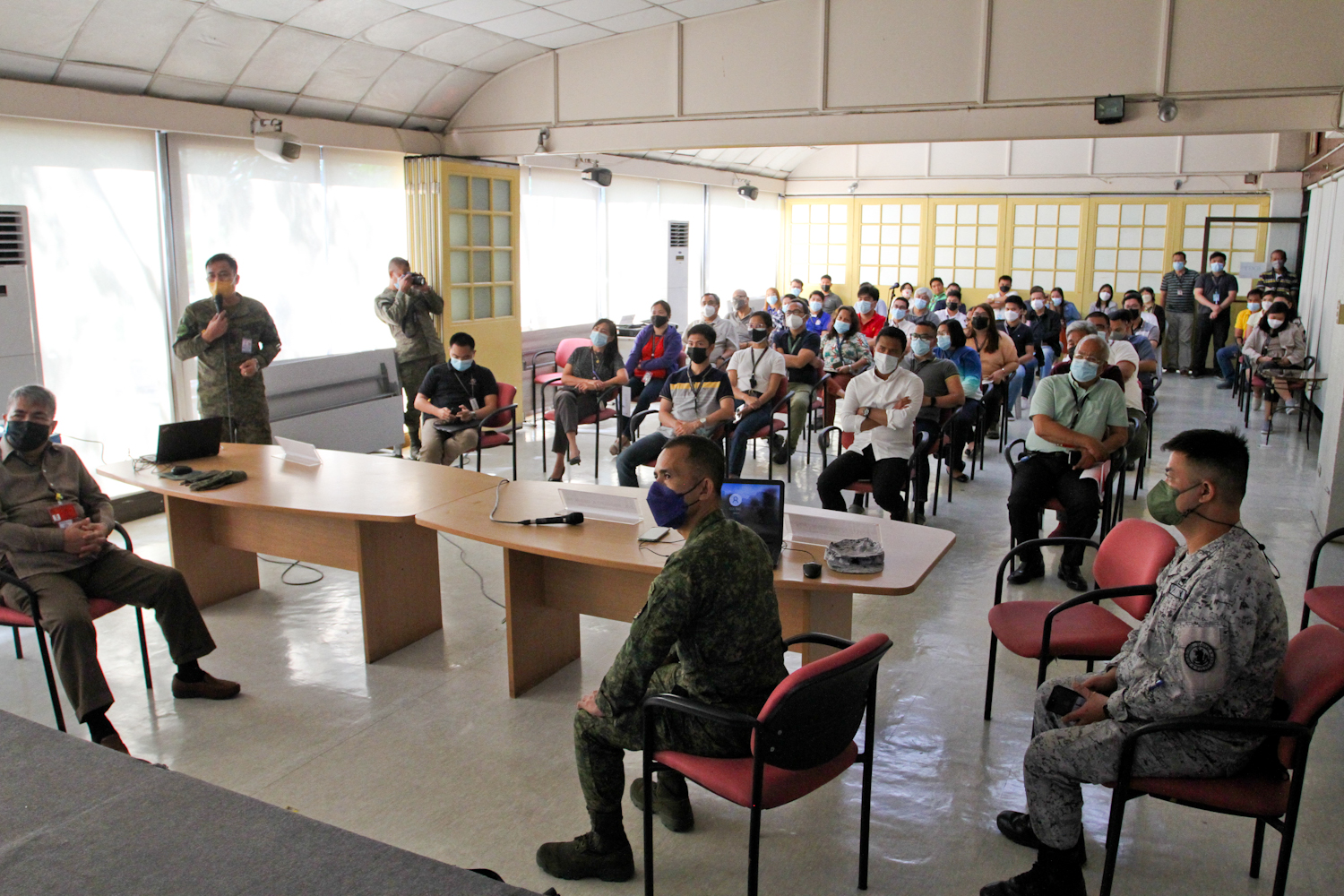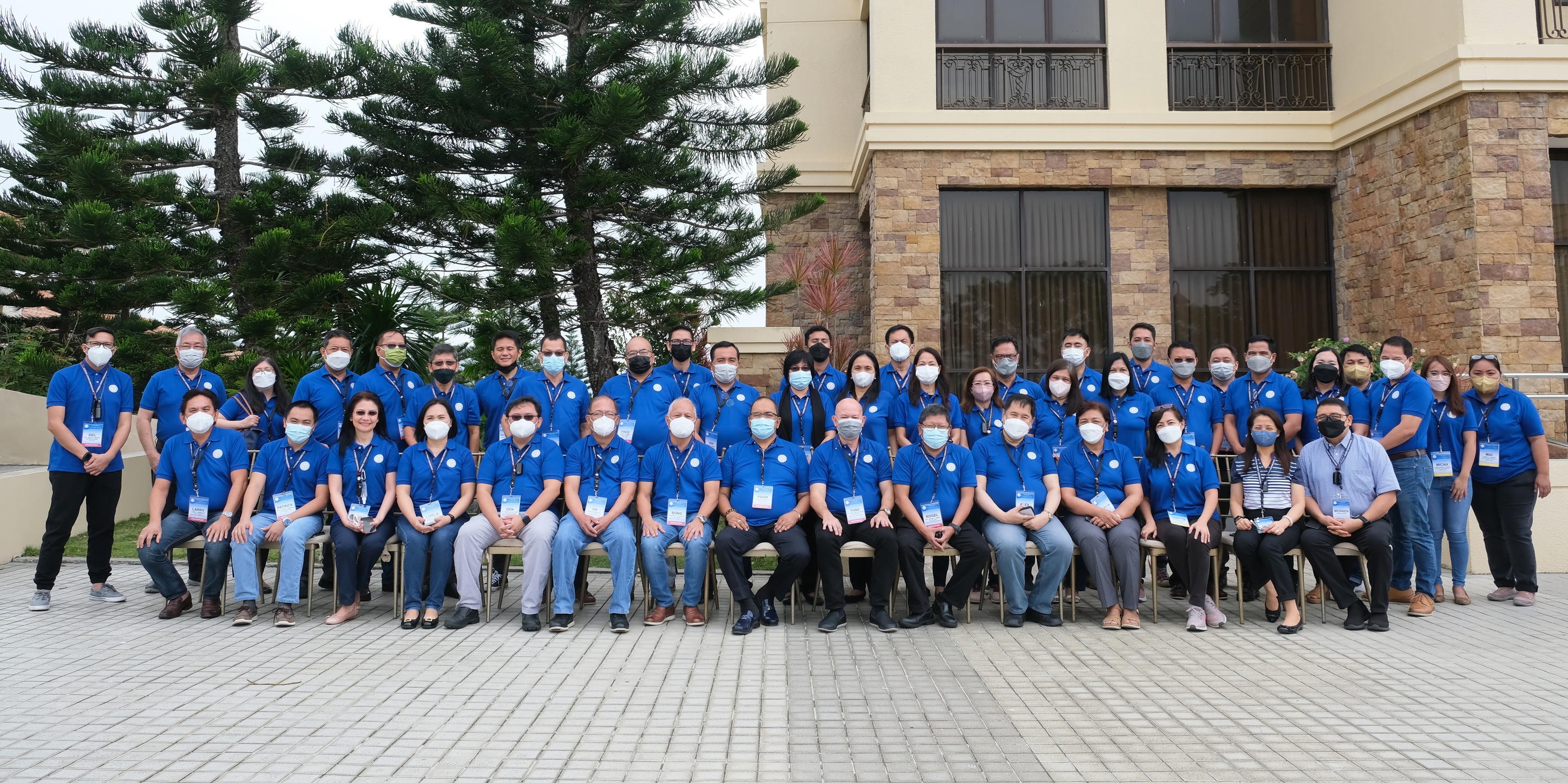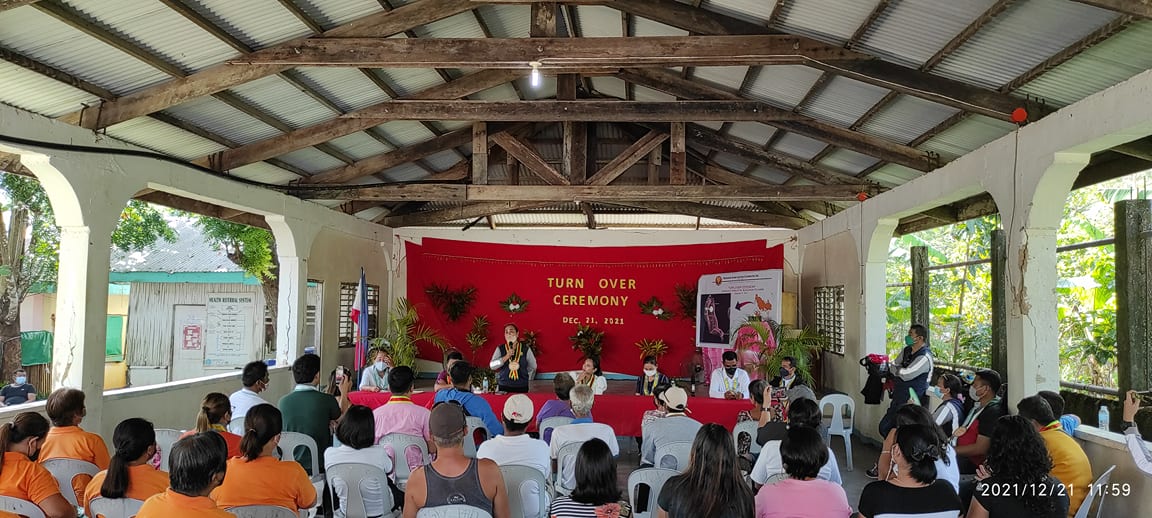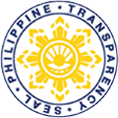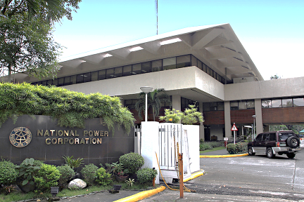Warning: Attempt to read property "id" on null in C:\xampp\htdocs\components\com_content\views\category\view.html.php on line 271
NAPOCOR Seeks Congress Aid to Augment its 2023 Budget
State-owned National Power Corporation (Napocor) earlier sought Congress’ help for the augmentation of its 2023 budget to ensure that it can sustain the operations of its 278 Small Power Utilities Group (SPUG) plants nationwide.
In a letter addressed to the House Committee on Appropriations chaired by Rep. Elizaldy Co and vice-chaired by Rep. Stella Quimbo, Napocor emphasized the need for its supplemental budget to be included in the General Appropriations Act (GAA) for 2023 or that additional funding sources to cover the augmentation be approved this year.
“Inclusion of our proposed special provisions in the GAA would allow our Board to augment our budget if possible sources of funds become available without going back to Congress,” said Napocor president and CEO Fernando Martin Roxas.
Napocor said that the augmentation was due to the volatility of fuel prices which are currently priced twice as much than the initially available funds. Fuel accounts for almost 70% of the corporation’s operational costs for both its SPUG plants and new power provider subsidies (NPPs).
Roxas said that other contingency measures being considered are credit lines from the Landbank of the Philippines, immediate approval of tariff applications before the Energy Regulatory Commission (ERC) and reimbursements for the advances it made in the maintenance of the Bataan Nuclear Power Plant (BNPP) from 2011 to 2023 in the amount of 404 million.
As mandated by the Electric Power Industry Reform Act of 2001, Napocor powers up far-flung islands and communities not connected to the main grid. Along with NPPs/QTPs and with its 278 power plants and power barges and as operators of the transmission systems of six provinces, it provides electricity to around 1.3 million households in the countryside.
European Union funds solar home systems for 30,500 households in remote villages in Mindanao
𝘕𝘢𝘱𝘰𝘤𝘰𝘳 𝘩𝘰𝘭𝘥𝘴 𝘵𝘶𝘳𝘯𝘰𝘷𝘦𝘳 𝘤𝘦𝘳𝘦𝘮𝘰𝘯𝘺 𝘢𝘴 𝘱𝘳𝘰𝘫𝘦𝘤𝘵 𝘪𝘮𝘱𝘭𝘦𝘮𝘦𝘯𝘵𝘦𝘳
DAVAO CITY - The European Union (EU), the World Bank, and the National Power Corporation (Napocor) on Monday afternoon held a ceremony in Mindanao to mark the completion and formally turn over 30,500 units of solar home systems (SHS) installed in isolated households of five electric cooperatives (ECs) in Bukidnon, Sultan Kudarat, Davao del Sur, Cotabato, and South Cotabato.
With an investment of EUR18.4 million EU grant, this work is part of the EU’s larger EUR 66 million-funded electrification program under the Access to Sustainable Energy Programme (ASEP). The work on the electrification of households in remote villages in Mindanao has been implemented since 2019 by Napocor, with the technical support of the World Bank. Before this, 10,000 SHS units had already been installed in the same areas, co-funded by the World Bank-managed Global Partnership on Output-based Aid (GPOBA).
“The European Union is committed to supporting the Philippines’ thrust to promote renewable energy and improve energy access. We are proud to have financed this action that reached vulnerable and isolated communities directly, providing a sustainable solution to a basic need such as access to electricity,” said Mr. Christoph Wagner, Head of Cooperation of the EU Delegation to the Philippines.
Ndiamé Diop, the World Bank Country Director for Brunei, Malaysia, Philippines, and Thailand, said that electrification is essential for poverty alleviation and inclusive growth, stressing the World Bank is gratified for being able to contribute to the government’s last-mile electrification campaign.
“There are still more than 1 million households in the Philippines without access to electricity, most of them in remote and isolated regions or islands of Mindanao,” said Mr. Diop.
He further said that government leadership, public financing, and off-grid renewable energy solutions are critical to bringing electricity to these remote and impoverished households and communities.
Napocor as ASEP implementing agency conducted the bulk procurement of SHS and facilitated the delivery and installation of 30,500 units to households within the franchise areas of the five participating electric cooperatives: Bukidnon Second Electric Cooperative Inc.(BUSECO), Sultan Kudarat Electric Cooperative Inc. (Sukelco), Davao del Sur Electric Cooperative Inc. (Dasureco), South Cotabato II Electric Cooperative Inc. (Socoteco II), and Cotabato Electric Cooperative Inc. (Cotelco).
Each SHS package includes a 50-watt peak solar panel, a charge controller with lithium-ion batteries that can power at least 4 LED bulbs, a radio, torchlight, and USB ports to charge gadgets. The SHS is mainstreamed in the systems of electric cooperatives in terms of connection, billing, collection, operation, and maintenance. With the formal turnover of the SHS equipment, the beneficiary households now become member-consumer-owner of the ECs and will have the same rights and obligations as those connected in the electric cooperatives’ distribution system.
“The project has been successful in many ways – we have provided sustainable, safe, and clean energy in isolated households in these areas and have increased photovoltaic technology talents through professional training to our electric cooperatives,” said Napocor Officer-in-Charge Atty. Melchor P. Ridulme.
Ridulme also expressed gratitude to the World Bank and EU for supporting the implementation of ASEP, particularly during the challenging times of the COVID19 pandemic. He shared that, drawing inspiration from the project, Napocor will also be distributing SHS in its Small Power Utility Group areas using Philippine government funds.
NP Board designates Chief Legal Counsel again as Napocor OIC Prexy as Marcos resigns
The National Power Board early this week has designated National Power Corporation (Napocor) Acting SVP & COO and Vice President/Legal Counsel Atty. Melchor Ridulme as Officer-in-Charge after sitting OIC DOE Undersecretary Donato Marcos tendered his resignation, effective immediately.
Marcos who stated health issues in his notice of resignation said that he also wants to concentrate on his role as career undersecretary at the Department of Energy in the meantime.
Atty. Ridulme will be Napocor’s OIC until a new Appointive Director is nominated by President-elect Ferdinand Marcos, Jr. and formally elected as President and CEO by the National Power Board.
The NP Board has given him authority to approve and act on pressing matters that confront Napocor. This includes but is not limited to the following: sign contracts relating to the procurement of goods and services, approve disbursements of the corporation’s financial transactions, release funds and approve payroll of employees and personnel, issue office orders, and memoranda, and sign promotional appointments of employees.
Meanwhile, Atty. Ridulme said that the Corporation has recently finalized its inputs for the transition report being prepared by the Department of Finance for the next administration.
“Napocor management and our Office of the Corporate Secretary are also updating documents and presentations for the incoming Cabinet Secretaries and their alternates who will make up Napocor’s Governing Board,” Ridulme said.
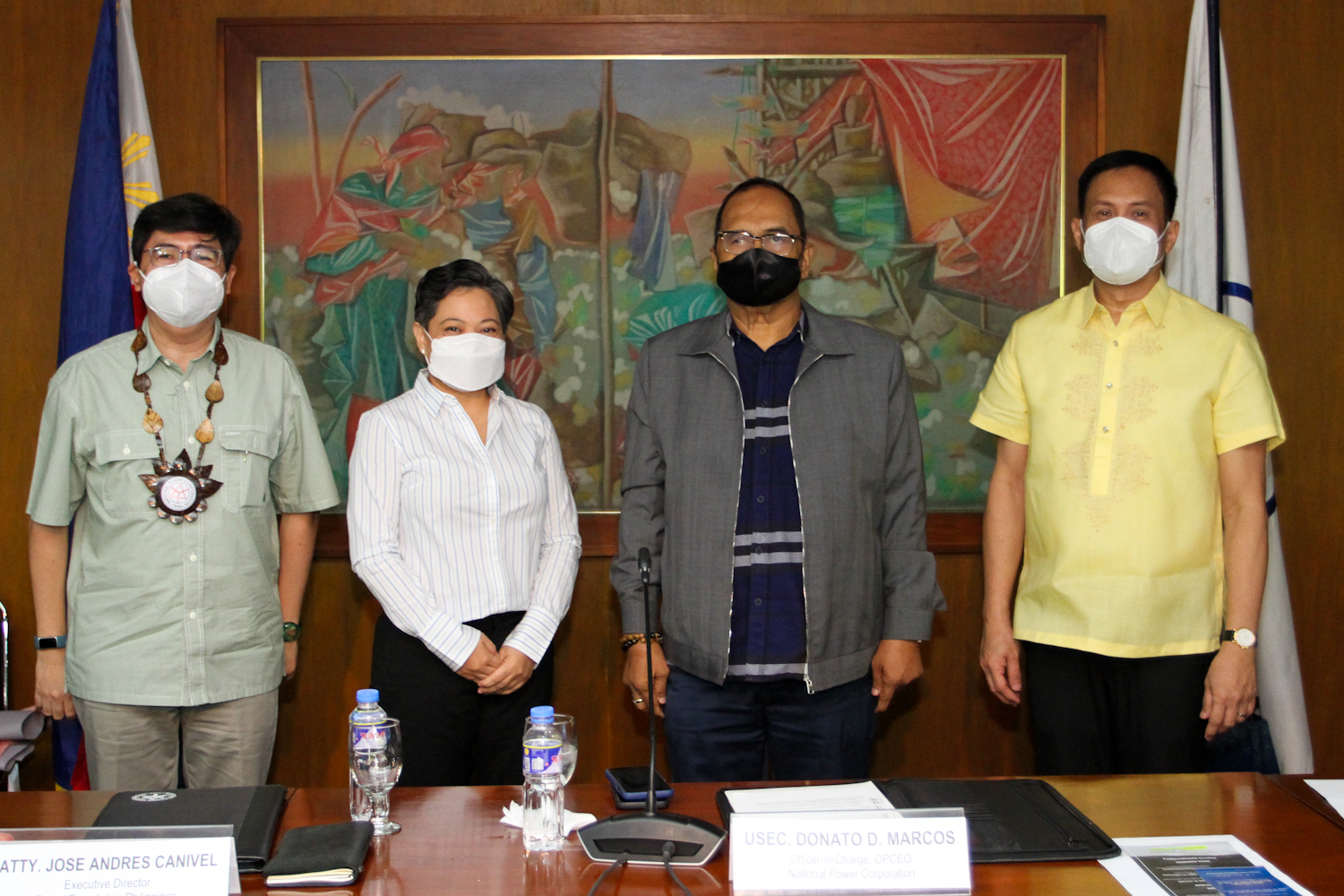
NPC signs memorandum of understanding with PTFCF for watershed conservation & management
National Power Corporation (NPC) Officer-in-Charge Usec. Donato D. Marcos on Tuesday signs a Memorandum of Understanding (MOU) with the Philippine Tropical Forest Conservation Foundation (PTFCF)
-
𝐍𝐏𝐂 𝐜𝐨𝐧𝐭𝐢𝐧𝐮𝐞𝐬 𝐭𝐨 𝐡𝐨𝐥𝐝 𝐟𝐨𝐫𝐞𝐬𝐭 𝐜𝐨𝐧𝐬𝐞𝐫𝐯𝐚𝐭𝐢𝐨𝐧 𝐥𝐞𝐜𝐭𝐮𝐫𝐞𝐬 𝐢𝐧 𝐂𝐚𝐥𝐢𝐫𝐚𝐲𝐚-𝐋𝐮𝐦𝐨𝐭 𝐖𝐚𝐭𝐞𝐫𝐬𝐡𝐞𝐝
- Information
- 18 April 2024
𝐍𝐏𝐂 𝐜𝐨𝐧𝐭𝐢𝐧𝐮𝐞𝐬 𝐭𝐨 𝐡𝐨𝐥𝐝 𝐟𝐨𝐫𝐞𝐬𝐭 𝐜𝐨𝐧𝐬𝐞𝐫𝐯𝐚𝐭𝐢𝐨𝐧 𝐥𝐞𝐜𝐭𝐮𝐫𝐞𝐬 𝐢𝐧 𝐂𝐚𝐥𝐢𝐫𝐚𝐲𝐚-𝐋𝐮𝐦𝐨𝐭 𝐖𝐚𝐭𝐞𝐫𝐬𝐡𝐞𝐝 NPC’s Caliraya Lumot Watershed Area Team (CLWAT) continues to empower the youth with information on watershed... -
𝐍𝐏𝐂 𝐨𝐩𝐞𝐧𝐬 𝐖𝐨𝐦𝐞𝐧’𝐬 𝐌𝐨𝐧𝐭𝐡 𝐰𝐢𝐭𝐡 𝐟𝐨𝐫𝐦𝐞𝐫 𝐁𝐮𝐥𝐚𝐜𝐚𝐧 𝐆𝐨𝐯 𝐚𝐧𝐝 𝐏𝐨𝐬𝐭𝐦𝐚𝐬𝐭𝐞𝐫 𝐆𝐞𝐧𝐞𝐫𝐚𝐥, 𝐉𝐨𝐬𝐢𝐞 𝐝𝐞𝐥𝐚 𝐂𝐫𝐮𝐳
- Information
- 07 March 2024
𝐍𝐏𝐂 𝐨𝐩𝐞𝐧𝐬 𝐖𝐨𝐦𝐞𝐧’𝐬 𝐌𝐨𝐧𝐭𝐡 𝐰𝐢𝐭𝐡 𝐟𝐨𝐫𝐦𝐞𝐫 𝐁𝐮𝐥𝐚𝐜𝐚𝐧 𝐆𝐨𝐯 𝐚𝐧𝐝 𝐏𝐨𝐬𝐭𝐦𝐚𝐬𝐭𝐞𝐫 𝐆𝐞𝐧𝐞𝐫𝐚𝐥, 𝐉𝐨𝐬𝐢𝐞 𝐝𝐞𝐥𝐚 𝐂𝐫𝐮𝐳 It was never a competition, but complementarity," Ms. Josie Dela Cruz said regarding the relations between men... -
𝐍𝐏𝐂 𝐞𝐦𝐩𝐥𝐨𝐲𝐞𝐞𝐬 𝐥𝐞𝐚𝐫𝐧 𝐝𝐚𝐭𝐚 𝐚𝐧𝐚𝐥𝐲𝐭𝐢𝐜𝐬
- Information
- 07 March 2024
𝐍𝐏𝐂 𝐞𝐦𝐩𝐥𝐨𝐲𝐞𝐞𝐬 𝐥𝐞𝐚𝐫𝐧 𝐝𝐚𝐭𝐚 𝐚𝐧𝐚𝐥𝐲𝐭𝐢𝐜𝐬 Selected NPC employees learned the basics of data analytics from end-to-end data solutions provider, Lena. The lecture, held in two sessions on February 16 and 23,... -
𝐍𝐏𝐂’𝐬 𝐒𝐏𝐔𝐆 𝐬𝐩𝐫𝐞𝐚𝐝𝐬 𝐂𝐡𝐫𝐢𝐬𝐭𝐦𝐚𝐬 𝐜𝐡𝐞𝐞𝐫 𝐢𝐧 𝐚 𝐜𝐡𝐢𝐥𝐝𝐫𝐞𝐧’𝐬 𝐡𝐨𝐦𝐞 𝐢𝐧 𝐑𝐢𝐳𝐚𝐥
- Information
- 10 January 2024
𝐍𝐏𝐂’𝐬 𝐒𝐏𝐔𝐆 𝐬𝐩𝐫𝐞𝐚𝐝𝐬 𝐂𝐡𝐫𝐢𝐬𝐭𝐦𝐚𝐬 𝐜𝐡𝐞𝐞𝐫 𝐢𝐧 𝐚 𝐜𝐡𝐢𝐥𝐝𝐫𝐞𝐧’𝐬 𝐡𝐨𝐦𝐞 𝐢𝐧 𝐑𝐢𝐳𝐚𝐥 In the spirit of the season, NPC’s Small Power Utilities Group spread Christmas cheers to the children of an orphanage in Rizal... -
𝐍𝐏𝐂, 𝐍𝐈𝐀 𝐣𝐨𝐢𝐧 𝐟𝐨𝐫𝐜𝐞𝐬 𝐟𝐨𝐫 𝐬𝐮𝐬𝐭𝐚𝐢𝐧𝐚𝐛𝐥𝐞 𝐰𝐚𝐭𝐞𝐫 𝐫𝐞𝐬𝐨𝐮𝐫𝐜𝐞 𝐦𝐚𝐧𝐚𝐠𝐞𝐦𝐞𝐧𝐭 𝐢𝐧 𝐌𝐚𝐤𝐁𝐚𝐧 𝐆𝐞𝐨𝐭𝐡𝐞𝐫𝐦𝐚𝐥 𝐑𝐞𝐬𝐞𝐫𝐯𝐚𝐭𝐢𝐨𝐧
- Information
- 10 January 2024
𝐍𝐏𝐂, 𝐍𝐈𝐀 𝐣𝐨𝐢𝐧 𝐟𝐨𝐫𝐜𝐞𝐬 𝐟𝐨𝐫 𝐬𝐮𝐬𝐭𝐚𝐢𝐧𝐚𝐛𝐥𝐞 𝐰𝐚𝐭𝐞𝐫 𝐫𝐞𝐬𝐨𝐮𝐫𝐜𝐞 𝐦𝐚𝐧𝐚𝐠𝐞𝐦𝐞𝐧𝐭 𝐢𝐧 𝐌𝐚𝐤𝐁𝐚𝐧 𝐆𝐞𝐨𝐭𝐡𝐞𝐫𝐦𝐚𝐥 𝐑𝐞𝐬𝐞𝐫𝐯𝐚𝐭𝐢𝐨𝐧 State agencies, National Power Corporation (NPC) and National Irrigation Administration (NIA) Region IVA... -
𝐍𝐏𝐂 𝐰𝐞𝐥𝐜𝐨𝐦𝐞𝐬 𝐊-𝐖𝐚𝐭𝐞𝐫 𝐝𝐞𝐥𝐞𝐠𝐚𝐭𝐞𝐬 𝐚𝐧𝐝 𝐩𝐨𝐬𝐬𝐢𝐛𝐥𝐞 𝐜𝐨𝐨𝐩𝐞𝐫𝐚𝐭𝐢𝐨𝐧 𝐟𝐨𝐫 𝐝𝐞𝐯𝐞𝐥𝐨𝐩𝐦𝐞𝐧𝐭 𝐩𝐫𝐨𝐣𝐞𝐜𝐭𝐬
- Information
- 10 January 2024
𝐍𝐏𝐂 𝐰𝐞𝐥𝐜𝐨𝐦𝐞𝐬 𝐊-𝐖𝐚𝐭𝐞𝐫 𝐝𝐞𝐥𝐞𝐠𝐚𝐭𝐞𝐬 𝐚𝐧𝐝 𝐩𝐨𝐬𝐬𝐢𝐛𝐥𝐞 𝐜𝐨𝐨𝐩𝐞𝐫𝐚𝐭𝐢𝐨𝐧 𝐟𝐨𝐫 𝐝𝐞𝐯𝐞𝐥𝐨𝐩𝐦𝐞𝐧𝐭 𝐩𝐫𝐨𝐣𝐞𝐜𝐭𝐬 NPC President and CEO Fernando Martin Roxas recently welcomed the delegates and officials from the Korea Water... -
𝐍𝐏𝐂 𝐫𝐞𝐯𝐢𝐬𝐢𝐭𝐬 𝐬𝐜𝐨𝐫𝐞𝐜𝐚𝐫𝐝, 𝐬𝐞𝐭𝐬 𝐭𝐚𝐫𝐠𝐞𝐭 𝐚𝐧𝐝 𝐢𝐝𝐞𝐧𝐭𝐢𝐟𝐢𝐞𝐬 𝐩𝐫𝐢𝐨𝐫𝐢𝐭𝐢𝐞𝐬 𝐝𝐮𝐫𝐢𝐧𝐠 𝟐𝟎𝟐𝟒 𝐌𝐚𝐧𝐚𝐠𝐞𝐦𝐞𝐧𝐭 𝐒𝐭𝐫𝐚𝐭𝐞𝐠𝐢𝐜...
- Information
- 10 January 2024
𝐍𝐏𝐂 𝐫𝐞𝐯𝐢𝐬𝐢𝐭𝐬 𝐬𝐜𝐨𝐫𝐞𝐜𝐚𝐫𝐝, 𝐬𝐞𝐭𝐬 𝐭𝐚𝐫𝐠𝐞𝐭 𝐚𝐧𝐝 𝐢𝐝𝐞𝐧𝐭𝐢𝐟𝐢𝐞𝐬 𝐩𝐫𝐢𝐨𝐫𝐢𝐭𝐢𝐞𝐬 𝐝𝐮𝐫𝐢𝐧𝐠 𝟐𝟎𝟐𝟒 𝐌𝐚𝐧𝐚𝐠𝐞𝐦𝐞𝐧𝐭 𝐒𝐭𝐫𝐚𝐭𝐞𝐠𝐢𝐜 𝐏𝐥𝐚𝐧𝐧𝐢𝐧𝐠 NPC’s top management and select managers have sat down in a two-day workshop to refine NPC’s... -
𝐍𝐏𝐂 𝐨𝐩𝐞𝐧𝐬 𝐧𝐞𝐰 𝐚𝐧𝐝 𝐩𝐞𝐫𝐦𝐚𝐧𝐞𝐧𝐭 𝐡𝐨𝐦𝐞 𝐢𝐧 𝐭𝐡𝐞 𝐕𝐢𝐬𝐚𝐲𝐚𝐬 𝐑𝐞𝐠𝐢𝐨𝐧
- Information
- 10 January 2024
𝐍𝐏𝐂 𝐨𝐩𝐞𝐧𝐬 𝐧𝐞𝐰 𝐚𝐧𝐝 𝐩𝐞𝐫𝐦𝐚𝐧𝐞𝐧𝐭 𝐡𝐨𝐦𝐞 𝐢𝐧 𝐭𝐡𝐞 𝐕𝐢𝐬𝐚𝐲𝐚𝐬 𝐑𝐞𝐠𝐢𝐨𝐧 After years of renting out building spaces, NPC finally opened its new and permanent home in Cebu City for its Small Power Utilities Group... -
𝐍𝐏𝐂 𝐜𝐨𝐧𝐝𝐮𝐜𝐭𝐬 𝟐-𝐝𝐚𝐲 𝐑𝐀 𝟗𝟏𝟖𝟒 𝐫𝐞𝐟𝐫𝐞𝐬𝐡𝐞𝐫 𝐭𝐫𝐚𝐢𝐧𝐢𝐧𝐠
- Information
- 30 November 2023
𝐍𝐏𝐂 𝐜𝐨𝐧𝐝𝐮𝐜𝐭𝐬 𝟐-𝐝𝐚𝐲 𝐑𝐀 𝟗𝟏𝟖𝟒 𝐫𝐞𝐟𝐫𝐞𝐬𝐡𝐞𝐫 𝐭𝐫𝐚𝐢𝐧𝐢𝐧𝐠 The National Power Corporation has recently conducted a two-day refresher training on Republic Act 9184 (Procurement Law) for the members of its Bids and... -
𝐍𝐏𝐂’𝐬 𝐌𝐢𝐧𝐆𝐞𝐧 𝐆𝐫𝐨𝐮𝐩 𝐠𝐥𝐨𝐰𝐬 𝐢𝐧 𝐧𝐞𝐨𝐧 𝐜𝐨𝐥𝐨𝐫𝐬 𝐨𝐧 𝐭𝐡𝐞 𝐜𝐨𝐫𝐩𝐨𝐫𝐚𝐭𝐢𝐨𝐧’𝐬 𝟖𝟕𝐭𝐡 𝐚𝐧𝐧𝐢𝐯𝐞𝐫𝐬𝐚𝐫𝐲
- Information
- 30 November 2023
𝐍𝐏𝐂’𝐬 𝐌𝐢𝐧𝐆𝐞𝐧 𝐆𝐫𝐨𝐮𝐩 𝐠𝐥𝐨𝐰𝐬 𝐢𝐧 𝐧𝐞𝐨𝐧 𝐜𝐨𝐥𝐨𝐫𝐬 𝐨𝐧 𝐭𝐡𝐞 𝐜𝐨𝐫𝐩𝐨𝐫𝐚𝐭𝐢𝐨𝐧’𝐬 𝟖𝟕𝐭𝐡 𝐚𝐧𝐧𝐢𝐯𝐞𝐫𝐬𝐚𝐫𝐲 NPC’s Mindanao Generation Group shone brightly in neon colors as they celebrated the National Power Corporation’s 87th... -
𝐍𝐏𝐂 𝐜𝐮𝐥𝐦𝐢𝐧𝐚𝐭𝐞𝐬 𝐢𝐭𝐬 𝐩𝐫𝐞-𝐚𝐧𝐧𝐢𝐯𝐞𝐫𝐬𝐚𝐫𝐲 𝐬𝐩𝐨𝐫𝐭𝐬 𝐟𝐞𝐬𝐭
- Information
- 30 November 2023
𝐍𝐏𝐂 𝐜𝐮𝐥𝐦𝐢𝐧𝐚𝐭𝐞𝐬 𝐢𝐭𝐬 𝐩𝐫𝐞-𝐚𝐧𝐧𝐢𝐯𝐞𝐫𝐬𝐚𝐫𝐲 𝐬𝐩𝐨𝐫𝐭𝐬 𝐟𝐞𝐬𝐭 On its 87th anniversary, NPC concluded its sports fest with the championship games on the first-ever online games face-off. The pre-anniversary sports... -
𝐍𝐏𝐂 𝐏𝐂𝐄𝐎 𝐣𝐨𝐢𝐧𝐬 𝐄𝐧𝐥𝐢𝐭 𝐀𝐬𝐢𝐚 𝟐𝟎𝟐𝟑, 𝐬𝐩𝐞𝐚𝐤𝐬 𝐨𝐧 𝐫𝐮𝐫𝐚𝐥 𝐞𝐥𝐞𝐜𝐭𝐫𝐢𝐟𝐢𝐜𝐚𝐭𝐢𝐨𝐧 𝐝𝐞𝐯𝐞𝐥𝐨𝐩𝐦𝐞𝐧𝐭𝐬
- Information
- 24 November 2023
𝐍𝐏𝐂 𝐏𝐂𝐄𝐎 𝐣𝐨𝐢𝐧𝐬 𝐄𝐧𝐥𝐢𝐭 𝐀𝐬𝐢𝐚 𝟐𝟎𝟐𝟑, 𝐬𝐩𝐞𝐚𝐤𝐬 𝐨𝐧 𝐫𝐮𝐫𝐚𝐥 𝐞𝐥𝐞𝐜𝐭𝐫𝐢𝐟𝐢𝐜𝐚𝐭𝐢𝐨𝐧 𝐝𝐞𝐯𝐞𝐥𝐨𝐩𝐦𝐞𝐧𝐭𝐬 National Power Corporation President and CEO Fernando Martin Y. Roxas joined the panel of speakers in the recently... -
𝐍𝐏𝐂 𝐦𝐚𝐢𝐧𝐭𝐚𝐢𝐧𝐬 𝐚𝐧 𝐨𝐮𝐭𝐬𝐭𝐚𝐧𝐝𝐢𝐧𝐠 𝐫𝐚𝐭𝐢𝐧𝐠 𝐢𝐧 𝐆𝐂𝐆’𝐬 𝟐𝟎𝟐𝟐 𝐂𝐆𝐒
- Information
- 24 November 2023
𝐍𝐏𝐂 𝐦𝐚𝐢𝐧𝐭𝐚𝐢𝐧𝐬 𝐚𝐧 𝐨𝐮𝐭𝐬𝐭𝐚𝐧𝐝𝐢𝐧𝐠 𝐫𝐚𝐭𝐢𝐧𝐠 𝐢𝐧 𝐆𝐂𝐆’𝐬 𝟐𝟎𝟐𝟐 𝐂𝐆𝐒 The National Power Corporation obtained a final rating of 94.92 in the Governance Commission of GOCC’s (GCG) corporate governance scorecard... -
𝟑𝟓 𝐝𝐚𝐲𝐬 𝐭𝐨 𝐂𝐡𝐫𝐢𝐬𝐭𝐦𝐚𝐬, 𝐍𝐏𝐂 𝐥𝐢𝐠𝐡𝐭𝐬 𝐮𝐩 𝐢𝐭𝐬 𝐓𝐫𝐞𝐞 𝐨𝐧 𝐌𝐨𝐧𝐝𝐚𝐲
- Information
- 24 November 2023
𝟑𝟓 𝐝𝐚𝐲𝐬 𝐭𝐨 𝐂𝐡𝐫𝐢𝐬𝐭𝐦𝐚𝐬, 𝐍𝐏𝐂 𝐥𝐢𝐠𝐡𝐭𝐬 𝐮𝐩 𝐢𝐭𝐬 𝐓𝐫𝐞𝐞 𝐨𝐧 𝐌𝐨𝐧𝐝𝐚𝐲 To heighten the anticipation for Christmas and to spread holiday cheer, the National Power Corporation held a Tree Lighting Ceremony on... -
𝐂𝐒𝐂 𝐠𝐫𝐚𝐧𝐭𝐬 𝐂𝐍𝐀 𝐑𝐞𝐠𝐢𝐬𝐭𝐫𝐚𝐭𝐢𝐨𝐧 𝐨𝐟 𝐍𝐏𝐂 𝐚𝐧𝐝 𝐞𝐦𝐩𝐥𝐨𝐲𝐞𝐞𝐬
- Information
- 24 November 2023
𝐂𝐒𝐂 𝐠𝐫𝐚𝐧𝐭𝐬 𝐂𝐍𝐀 𝐑𝐞𝐠𝐢𝐬𝐭𝐫𝐚𝐭𝐢𝐨𝐧 𝐨𝐟 𝐍𝐏𝐂 𝐚𝐧𝐝 𝐞𝐦𝐩𝐥𝐨𝐲𝐞𝐞𝐬 The Civil Service Commission (CSC) issued a registration certificate for the three-year Collective Negotiation Agreement between the National Power... -
𝐍𝐏𝐂 𝐜𝐞𝐥𝐞𝐛𝐫𝐚𝐭𝐞𝐬 𝟖𝟕𝐭𝐡 𝐚𝐧𝐧𝐢𝐯𝐞𝐫𝐬𝐚𝐫𝐲, 𝐫𝐞𝐬𝐨𝐥𝐯𝐞𝐬 𝐭𝐨 𝐫𝐢𝐬𝐞 𝐚𝐛𝐨𝐯𝐞 𝐭𝐡𝐞 𝐜𝐡𝐚𝐥𝐥𝐞𝐧𝐠𝐞𝐬
- Information
- 24 November 2023
𝐍𝐏𝐂 𝐜𝐞𝐥𝐞𝐛𝐫𝐚𝐭𝐞𝐬 𝟖𝟕𝐭𝐡 A𝐧𝐧𝐢𝐯𝐞𝐫𝐬𝐚𝐫𝐲, 𝐫𝐞𝐬𝐨𝐥𝐯𝐞𝐬 𝐭𝐨 𝐫𝐢𝐬𝐞 𝐚𝐛𝐨𝐯𝐞 𝐭𝐡𝐞 𝐜𝐡𝐚𝐥𝐥𝐞𝐧𝐠𝐞𝐬 The National Power Corporation on Monday held a simple celebration to commemorate its 87th founding anniversary with the... -
𝐓𝐡𝐞 𝐦𝐚𝐩 𝐢𝐬 𝐫𝐞𝐚𝐝𝐲 𝐟𝐨𝐫 𝐭𝐡𝐞 𝐧𝐞𝐱𝐭 𝐲𝐞𝐚𝐫𝐬 𝐨𝐟 𝐍𝐏𝐂 – 𝐃𝐎𝐄 𝐒𝐞𝐜 𝐏𝐨𝐩𝐨 𝐋𝐨𝐭𝐢𝐥𝐥𝐚
- Information
- 24 November 2023
𝐓𝐡𝐞 𝐦𝐚𝐩 𝐢𝐬 𝐫𝐞𝐚𝐝𝐲 𝐟𝐨𝐫 𝐭𝐡𝐞 𝐧𝐞𝐱𝐭 𝐲𝐞𝐚𝐫𝐬 𝐨𝐟 𝐍𝐏𝐂 – 𝐃𝐎𝐄 𝐒𝐞𝐜 𝐏𝐨𝐩𝐨 𝐋𝐨𝐭𝐢𝐥𝐥𝐚 Energy Secretary Raphael M. Lotilla thanked the employees of the National Power Corporation during its 87th-anniversary celebration for its... -
𝐓𝐨𝐝𝐚𝐲, 𝐭𝐡𝐞 𝐍𝐚𝐭𝐢𝐨𝐧𝐚𝐥 𝐏𝐨𝐰𝐞𝐫 𝐂𝐨𝐫𝐩𝐨𝐫𝐚𝐭𝐢𝐨𝐧 𝐨𝐟𝐟𝐢𝐜𝐢𝐚𝐥𝐥𝐲 𝐭𝐮𝐫𝐧𝐬 𝟖𝟕!
- Information
- 24 November 2023
𝐓𝐨𝐝𝐚𝐲, 𝐭𝐡𝐞 𝐍𝐚𝐭𝐢𝐨𝐧𝐚𝐥 𝐏𝐨𝐰𝐞𝐫 𝐂𝐨𝐫𝐩𝐨𝐫𝐚𝐭𝐢𝐨𝐧 𝐨𝐟𝐟𝐢𝐜𝐢𝐚𝐥𝐥𝐲 𝐭𝐮𝐫𝐧𝐬 𝟖𝟕! On its 87th anniversary, NPC affirms its resolute commitment to service and declares its bold vision of embedding more sustainable measures and... -
𝐍𝐏𝐂 𝐥𝐢𝐠𝐡𝐭𝐬 𝐮𝐩 𝐭𝐰𝐨 (𝟐) 𝐧𝐞𝐰 𝐨𝐟𝐟-𝐠𝐫𝐢𝐝 𝐚𝐫𝐞𝐚𝐬 𝐢𝐧 𝐏𝐚𝐥𝐚𝐰𝐚𝐧
- Information
- 05 October 2023
𝐍𝐏𝐂 𝐥𝐢𝐠𝐡𝐭𝐬 𝐮𝐩 𝐭𝐰𝐨 (𝟐) 𝐧𝐞𝐰 𝐨𝐟𝐟-𝐠𝐫𝐢𝐝 𝐚𝐫𝐞𝐚𝐬 𝐢𝐧 𝐏𝐚𝐥𝐚𝐰𝐚𝐧 The National Power Corporation energized and inaugurated two (2) new off-grid areas in Taytay and Culion in Palawan as part of its commitment to... -
-
NPC PCEO turns over 2MWp grid-tied solar farms to South Cotabato II and Sultan Kudarat Electric...
- Information
- 05 October 2023
NPC PCEO turns over 2MWp grid-tied solar farms to South Cotabato II and Sultan Kudarat Electric Cooperatives GENSAN CITY - National Power Corporation President and CEO Fernando Martin Roxas on... -
International Day of the World’s Indigenous Peoples
- Information
- 05 October 2023
International Day of the World’s Indigenous Peoples Ang National Power Corporation ay nakikiisa at nagpapaabot ng mainit na pagbati sa lahat ng katutubong pangkat at mamamayan sa bansa sa... -
𝐍𝐏𝐂, 𝐯𝐚𝐫𝐢𝐨𝐮𝐬 𝐚𝐠𝐞𝐧𝐜𝐢𝐞𝐬 𝐭𝐫𝐚𝐢𝐧 ‘𝐟𝐢𝐬𝐡 𝐰𝐚𝐫𝐝𝐞𝐧𝐬’ 𝐟𝐨𝐫 𝐋𝐚𝐤𝐞 𝐁𝐮𝐡𝐢 𝐢𝐧 𝐚𝐧 𝐚𝐭𝐭𝐞𝐦𝐩𝐭 𝐭𝐨 𝐩𝐫𝐞𝐬𝐞𝐫𝐯𝐞 𝐒𝐢𝐧𝐚𝐫𝐚𝐩𝐚𝐧
- Information
- 05 October 2023
𝐍𝐏𝐂, 𝐯𝐚𝐫𝐢𝐨𝐮𝐬 𝐚𝐠𝐞𝐧𝐜𝐢𝐞𝐬 𝐭𝐫𝐚𝐢𝐧 ‘𝐟𝐢𝐬𝐡 𝐰𝐚𝐫𝐝𝐞𝐧𝐬’ 𝐟𝐨𝐫 𝐋𝐚𝐤𝐞 𝐁𝐮𝐡𝐢 𝐢𝐧 𝐚𝐧 𝐚𝐭𝐭𝐞𝐦𝐩𝐭 𝐭𝐨 𝐩𝐫𝐞𝐬𝐞𝐫𝐯𝐞 𝐒𝐢𝐧𝐚𝐫𝐚𝐩𝐚𝐧 NPC’s Buhi-Barit Watershed Area Team (BBWAT) along with the Bureau of Fisheries and Aquatic Resources... -
President Ferdinand R. Marcos, Jr. witnesses the signing ceremony
- Information
- 05 October 2023
President Ferdinand R. Marcos, Jr. witnesses the signing ceremony President Ferdinand R. Marcos, Jr. witnesses the signing ceremony today, 6 July, between the Department of Energy and the Ministry of... -
𝐍𝐏𝐂 𝐌𝐚𝐧𝐂𝐨𝐦 𝐠𝐞𝐭𝐬 𝐚 𝐯𝐢𝐬𝐢𝐭 𝐟𝐫𝐨𝐦 𝐭𝐡𝐞 𝐏𝐡𝐢𝐥𝐢𝐩𝐩𝐢𝐧𝐞 𝐌𝐚𝐫𝐢𝐧𝐞 𝐂𝐨𝐫𝐩𝐬
- Information
- 05 October 2023
𝐍𝐏𝐂 𝐌𝐚𝐧𝐂𝐨𝐦 𝐠𝐞𝐭𝐬 𝐚 𝐯𝐢𝐬𝐢𝐭 𝐟𝐫𝐨𝐦 𝐭𝐡𝐞 𝐏𝐡𝐢𝐥𝐢𝐩𝐩𝐢𝐧𝐞 𝐌𝐚𝐫𝐢𝐧𝐞 𝐂𝐨𝐫𝐩𝐬 Brig. Gen. Romeo Racadio, commander of the 2nd Marine Brigade on Tuesday visited NPC and met with the NPC Management Committee for a briefing on... -
Napocor in talks with major local developers, foreign firms
- Information
- 05 October 2023
-
-
𝐂𝐂𝐂, 𝐍𝐏𝐂 𝐬𝐞𝐚𝐥 𝐩𝐚𝐜𝐭 𝐭𝐨 𝐚𝐜𝐜𝐞𝐥𝐞𝐫𝐚𝐭𝐞 𝐆𝐇𝐆 𝐦𝐢𝐭𝐢𝐠𝐚𝐭𝐢𝐨𝐧 𝐭𝐡𝐫𝐨𝐮𝐠𝐡 𝐜𝐚𝐫𝐛𝐨𝐧 𝐧𝐞𝐮𝐭𝐫𝐚𝐥𝐢𝐭𝐲 𝐩𝐫𝐨𝐠𝐫𝐚𝐦
- Information
- 05 October 2023
𝐂𝐂𝐂, 𝐍𝐏𝐂 𝐬𝐞𝐚𝐥 𝐩𝐚𝐜𝐭 𝐭𝐨 𝐚𝐜𝐜𝐞𝐥𝐞𝐫𝐚𝐭𝐞 𝐆𝐇𝐆 𝐦𝐢𝐭𝐢𝐠𝐚𝐭𝐢𝐨𝐧 𝐭𝐡𝐫𝐨𝐮𝐠𝐡 𝐜𝐚𝐫𝐛𝐨𝐧 𝐧𝐞𝐮𝐭𝐫𝐚𝐥𝐢𝐭𝐲 𝐩𝐫𝐨𝐠𝐫𝐚𝐦 QUEZON CITY, Philippines – The Climate Change Commission PH (CCC) is ramping up implementation of strategies to... -
𝐍𝐚𝐩𝐨𝐜𝐨𝐫 𝐞𝐧𝐞𝐫𝐠𝐢𝐳𝐞𝐬 𝐭𝐰𝐨 𝐧𝐞𝐰 𝐟𝐚𝐫-𝐟𝐥𝐮𝐧𝐠 𝐚𝐫𝐞𝐚𝐬 𝐢𝐧 𝐏𝐚𝐥𝐚𝐰𝐚𝐧
- Information
- 05 October 2023
𝐍𝐚𝐩𝐨𝐜𝐨𝐫 𝐞𝐧𝐞𝐫𝐠𝐢𝐳𝐞𝐬 𝐭𝐰𝐨 𝐧𝐞𝐰 𝐟𝐚𝐫-𝐟𝐥𝐮𝐧𝐠 𝐚𝐫𝐞𝐚𝐬 𝐢𝐧 𝐏𝐚𝐥𝐚𝐰𝐚𝐧 In July 2023, the National Power Corporation (NAPOCOR) switched on two new power plants in Palawan as part of its commitment to providing... -
𝐂𝐞𝐫𝐭𝐢𝐟𝐢𝐜𝐚𝐭𝐞 𝐨𝐟 𝐂𝐨𝐦𝐩𝐥𝐢𝐚𝐧𝐜𝐞 𝐬𝐚 𝐅𝐎𝐈, 𝐭𝐢𝐧𝐚𝐧𝐠𝐠𝐚𝐩 𝐧𝐠 𝐍𝐏𝐂
- Information
- 05 October 2023
𝐂𝐞𝐫𝐭𝐢𝐟𝐢𝐜𝐚𝐭𝐞 𝐨𝐟 𝐂𝐨𝐦𝐩𝐥𝐢𝐚𝐧𝐜𝐞 𝐬𝐚 𝐅𝐎𝐈, 𝐭𝐢𝐧𝐚𝐧𝐠𝐠𝐚𝐩 𝐧𝐠 𝐍𝐏𝐂 Natanggap kamakailan ng National Power Corporation ang sertipikasyon nito mula sa Presidential Communications Office (PCO) para sa pagsunod sa... -
𝐍𝐏𝐂 𝐫𝐞𝐜𝐞𝐢𝐯𝐞𝐬 𝐚𝐩𝐩𝐫𝐞𝐜𝐢𝐚𝐭𝐢𝐨𝐧 𝐩𝐥𝐚𝐪𝐮𝐞𝐬 𝐟𝐫𝐨𝐦 𝐂𝐚𝐯𝐢𝐧𝐭𝐢 𝐚𝐧𝐝 𝐭𝐡𝐞 𝟐𝟎𝟐𝐧𝐝 𝐈𝐁 𝐨𝐟 𝐭𝐡𝐞 𝐏𝐡𝐢𝐥𝐢𝐩𝐩𝐢𝐧𝐞 𝐀𝐫𝐦𝐲
- Information
- 22 September 2023
𝐍𝐏𝐂 𝐫𝐞𝐜𝐞𝐢𝐯𝐞𝐬 𝐚𝐩𝐩𝐫𝐞𝐜𝐢𝐚𝐭𝐢𝐨𝐧 𝐩𝐥𝐚𝐪𝐮𝐞𝐬 𝐟𝐫𝐨𝐦 𝐂𝐚𝐯𝐢𝐧𝐭𝐢 𝐚𝐧𝐝 𝐭𝐡𝐞 𝟐𝟎𝟐𝐧𝐝 𝐈𝐁 𝐨𝐟 𝐭𝐡𝐞 𝐏𝐡𝐢𝐥𝐢𝐩𝐩𝐢𝐧𝐞 𝐀𝐫𝐦𝐲 The National Power Corporation recently received plaques of appreciation from the Municipality of Cavinti in... -
𝐍𝐏𝐂 𝐡𝐨𝐬𝐭𝐬 𝐋𝐚𝐠𝐮𝐧𝐚’𝐬 𝟐𝐧𝐝 𝐏𝐫𝐨𝐯𝐢𝐧𝐜𝐢𝐚𝐥 𝐌𝐮𝐥𝐭𝐢-𝐒𝐞𝐜𝐭𝐨𝐫𝐚𝐥 𝐅𝐨𝐫𝐞𝐬𝐭 𝐏𝐫𝐨𝐭𝐞𝐜𝐭𝐢𝐨𝐧 𝐂𝐨𝐦𝐦𝐢𝐭𝐭𝐞𝐞 𝐦𝐞𝐞𝐭𝐢𝐧𝐠
- Information
- 22 September 2023
𝐍𝐏𝐂 𝐡𝐨𝐬𝐭𝐬 𝐋𝐚𝐠𝐮𝐧𝐚’𝐬 𝟐𝐧𝐝 𝐏𝐫𝐨𝐯𝐢𝐧𝐜𝐢𝐚𝐥 𝐌𝐮𝐥𝐭𝐢-𝐒𝐞𝐜𝐭𝐨𝐫𝐚𝐥 𝐅𝐨𝐫𝐞𝐬𝐭 𝐏𝐫𝐨𝐭𝐞𝐜𝐭𝐢𝐨𝐧 𝐂𝐨𝐦𝐦𝐢𝐭𝐭𝐞𝐞 𝐦𝐞𝐞𝐭𝐢𝐧𝐠 In its bid to fortify stakeholder relations and in the protection of the Caliraya Watershed, the National Power... -
PPP Center, NPC gather potential players for the latter’s Accelerated Hybridization Project
- Information
- 22 September 2023
PPP Center, NPC gather potential players for the latter’s Accelerated Hybridization Project The National Power Corporation (Napocor) on Thursday afternoon meets around 80 potential players for its... -
𝐍𝐏𝐂 𝐏𝐂𝐄𝐎 𝐯𝐢𝐬𝐢𝐭𝐬 𝐓𝐚𝐰𝐢-𝐓𝐚𝐰𝐢, 𝐬𝐰𝐢𝐭𝐜𝐡𝐞𝐬 𝐨𝐧 𝐚𝐝𝐝𝐢𝐭𝐢𝐨𝐧𝐚𝐥 𝐜𝐚𝐩𝐚𝐜𝐢𝐭𝐢𝐞𝐬 𝐢𝐧 𝐒𝐢𝐦𝐮𝐧𝐮𝐥
- Information
- 05 July 2023
𝐍𝐏𝐂 𝐏𝐂𝐄𝐎 𝐯𝐢𝐬𝐢𝐭𝐬 𝐓𝐚𝐰𝐢-𝐓𝐚𝐰𝐢, 𝐬𝐰𝐢𝐭𝐜𝐡𝐞𝐬 𝐨𝐧 𝐚𝐝𝐝𝐢𝐭𝐢𝐨𝐧𝐚𝐥 𝐜𝐚𝐩𝐚𝐜𝐢𝐭𝐢𝐞𝐬 𝐢𝐧 𝐒𝐢𝐦𝐮𝐧𝐮𝐥 NPC President and CEO Fernando Martin Roxas early this week led the switch-on ceremony of the 1.2 MW generating sets for... -
𝐍𝐏𝐂 𝐬𝐢𝐠𝐧𝐬 𝐭𝐡𝐞 𝟐𝟎𝟐𝟑 𝐏𝐞𝐫𝐟𝐨𝐫𝐦𝐚𝐧𝐜𝐞 𝐒𝐜𝐨𝐫𝐞𝐜𝐚𝐫𝐝 𝐚𝐭 𝐆𝐂𝐆’𝐬 𝐏𝐞𝐫𝐟𝐨𝐫𝐦𝐚𝐧𝐜𝐞 𝐓𝐚𝐫𝐠𝐞𝐭 𝐂𝐨𝐧𝐟𝐞𝐫𝐞𝐧𝐜𝐞
- Information
- 05 July 2023
𝐍𝐏𝐂 𝐬𝐢𝐠𝐧𝐬 𝐭𝐡𝐞 𝟐𝟎𝟐𝟑 𝐏𝐞𝐫𝐟𝐨𝐫𝐦𝐚𝐧𝐜𝐞 𝐒𝐜𝐨𝐫𝐞𝐜𝐚𝐫𝐝 𝐚𝐭 𝐆𝐂𝐆’𝐬 𝐏𝐞𝐫𝐟𝐨𝐫𝐦𝐚𝐧𝐜𝐞 𝐓𝐚𝐫𝐠𝐞𝐭 𝐂𝐨𝐧𝐟𝐞𝐫𝐞𝐧𝐜𝐞 NPC executives led by President and CEO Fernando Martin Y. Roxas have recently attended the Governance Commission for... -
𝐍𝐏𝐂’𝐬 𝐈𝐧𝐭𝐞𝐫𝐧𝐚𝐥 𝐀𝐮𝐝𝐢𝐭 𝐃𝐞𝐩𝐚𝐫𝐭𝐦𝐞𝐧𝐭 𝐡𝐨𝐥𝐝𝐬 𝐥𝐞𝐚𝐫𝐧𝐢𝐧𝐠 𝐬𝐞𝐬𝐬𝐢𝐨𝐧 𝐰𝐢𝐭𝐡 𝐄𝐑𝐂-𝐈𝐀𝐃
- Information
- 05 July 2023
𝐍𝐏𝐂’𝐬 𝐈𝐧𝐭𝐞𝐫𝐧𝐚𝐥 𝐀𝐮𝐝𝐢𝐭 𝐃𝐞𝐩𝐚𝐫𝐭𝐦𝐞𝐧𝐭 𝐡𝐨𝐥𝐝𝐬 𝐥𝐞𝐚𝐫𝐧𝐢𝐧𝐠 𝐬𝐞𝐬𝐬𝐢𝐨𝐧 𝐰𝐢𝐭𝐡 𝐄𝐑𝐂-𝐈𝐀𝐃 As part of its pursuit to promote good governance and accountability in public service, NPC’s Internal Audit Department (IAD) on... -
𝐍𝐏𝐂 𝐡𝐨𝐧𝐨𝐫𝐬 𝐕𝐏 𝐕𝐞𝐥𝐨𝐬𝐨 𝐨𝐟 𝐌𝐢𝐧𝐝𝐚𝐧𝐚𝐨 𝐆𝐞𝐧𝐞𝐫𝐚𝐭𝐢𝐨𝐧
- Information
- 05 July 2023
𝐍𝐏𝐂 𝐡𝐨𝐧𝐨𝐫𝐬 𝐕𝐏 𝐕𝐞𝐥𝐨𝐬𝐨 𝐨𝐟 𝐌𝐢𝐧𝐝𝐚𝐧𝐚𝐨 𝐆𝐞𝐧𝐞𝐫𝐚𝐭𝐢𝐨𝐧 The NPC family led by the Management Committee and Mindanao Generation paid tribute to Vice President Edmundo A. Veloso as he celebrated his 65th birthday and... -
𝐖𝐁, 𝐍𝐚𝐩𝐨𝐜𝐨𝐫 𝐡𝐨𝐥𝐝 𝐠𝐫𝐨𝐮𝐧𝐝𝐛𝐫𝐞𝐚𝐤𝐢𝐧𝐠 𝐨𝐟 𝐚𝐧𝐨𝐭𝐡𝐞𝐫 𝐄𝐔-𝐟𝐮𝐧𝐝𝐞𝐝 𝐬𝐨𝐥𝐚𝐫 𝐩𝐫𝐨𝐣𝐞𝐜𝐭
- Information
- 09 March 2023
𝐖𝐁, 𝐍𝐚𝐩𝐨𝐜𝐨𝐫 𝐡𝐨𝐥𝐝 𝐠𝐫𝐨𝐮𝐧𝐝𝐛𝐫𝐞𝐚𝐤𝐢𝐧𝐠 𝐨𝐟 𝐚𝐧𝐨𝐭𝐡𝐞𝐫 𝐄𝐔-𝐟𝐮𝐧𝐝𝐞𝐝 𝐬𝐨𝐥𝐚𝐫 𝐩𝐫𝐨𝐣𝐞𝐜𝐭 World Bank representatives and the National Power Corporation (Napocor) recently held the groundbreaking ceremonies of the European... -
𝐍𝐏𝐂-𝐖𝐌𝐃 𝐬𝐢𝐭𝐬 𝐝𝐨𝐰𝐧 𝐰𝐢𝐭𝐡 𝐁𝐨𝐤𝐨𝐝, 𝐁𝐞𝐧𝐠𝐮𝐞𝐭 𝐬𝐭𝐚𝐤𝐞𝐡𝐨𝐥𝐝𝐞𝐫𝐬 𝐭𝐨 𝐬𝐭𝐫𝐞𝐧𝐠𝐭𝐡𝐞𝐧 𝐟𝐨𝐫𝐞𝐬𝐭 𝐟𝐢𝐫𝐞 𝐦𝐚𝐧𝐚𝐠𝐞𝐦𝐞𝐧𝐭
- Information
- 09 March 2023
𝐍𝐏𝐂-𝐖𝐌𝐃 𝐬𝐢𝐭𝐬 𝐝𝐨𝐰𝐧 𝐰𝐢𝐭𝐡 𝐁𝐨𝐤𝐨𝐝, 𝐁𝐞𝐧𝐠𝐮𝐞𝐭 𝐬𝐭𝐚𝐤𝐞𝐡𝐨𝐥𝐝𝐞𝐫𝐬 𝐭𝐨 𝐬𝐭𝐫𝐞𝐧𝐠𝐭𝐡𝐞𝐧 𝐟𝐨𝐫𝐞𝐬𝐭 𝐟𝐢𝐫𝐞 𝐦𝐚𝐧𝐚𝐠𝐞𝐦𝐞𝐧𝐭 NPC’s Watershed Management Department (NPC-WMD) on February 8 met with various stakeholders in Bokod in... -
𝐏𝐫𝐞𝐬𝐢𝐝𝐞𝐧𝐭 𝐍𝐚𝐧𝐢 𝐥𝐢𝐤𝐞𝐧𝐬 𝐍𝐏𝐂 𝐭𝐨 𝐚 𝐩𝐚𝐫𝐞𝐧𝐭, 𝐜𝐚𝐥𝐥𝐬 𝐨𝐧 𝐞𝐦𝐩𝐥𝐨𝐲𝐞𝐞𝐬 ‘𝐭𝐚𝐤𝐞 𝐜𝐚𝐫𝐞 𝐨𝐟 𝐨𝐮𝐫 𝐚𝐠𝐢𝐧𝐠 𝐩𝐚𝐫𝐞𝐧𝐭’
- Information
- 08 February 2023
𝐏𝐫𝐞𝐬𝐢𝐝𝐞𝐧𝐭 𝐍𝐚𝐧𝐢 𝐥𝐢𝐤𝐞𝐧𝐬 𝐍𝐏𝐂 𝐭𝐨 𝐚 𝐩𝐚𝐫𝐞𝐧𝐭, 𝐜𝐚𝐥𝐥𝐬 𝐨𝐧 𝐞𝐦𝐩𝐥𝐨𝐲𝐞𝐞𝐬 ‘𝐭𝐚𝐤𝐞 𝐜𝐚𝐫𝐞 𝐨𝐟 𝐨𝐮𝐫 𝐚𝐠𝐢𝐧𝐠 𝐩𝐚𝐫𝐞𝐧𝐭’ “NPC is like a kind and loving parent to all of us. Now that it has grown old, it is our turn to show some... -
National Power Corporation’s official statement on the challenges
- Information
- 08 February 2023
National Power Corporation’s official statement on the challenges Here is the National Power Corporation’s official statement on the challenges it confronts and the measures it is currently... -
𝐍𝐏𝐂’𝐬 𝐒𝐏𝐔𝐆 𝐋𝐮𝐳𝐨𝐧 𝐞𝐚𝐫𝐧𝐬 𝐬𝐞𝐜𝐨𝐧𝐝 𝐄𝐧𝐞𝐫𝐠𝐲 𝐄𝐟𝐟𝐢𝐜𝐢𝐞𝐧𝐜𝐲 𝐄𝐱𝐜𝐞𝐥𝐥𝐞𝐧𝐜𝐞 𝐀𝐰𝐚𝐫𝐝
- Information
- 08 February 2023
𝐍𝐏𝐂’𝐬 𝐒𝐏𝐔𝐆 𝐋𝐮𝐳𝐨𝐧 𝐞𝐚𝐫𝐧𝐬 𝐬𝐞𝐜𝐨𝐧𝐝 𝐄𝐧𝐞𝐫𝐠𝐲 𝐄𝐟𝐟𝐢𝐜𝐢𝐞𝐧𝐜𝐲 𝐄𝐱𝐜𝐞𝐥𝐥𝐞𝐧𝐜𝐞 𝐀𝐰𝐚𝐫𝐝 NPC’s SPUG Luzon Operations Department (SPUG-LOD) has recently been conferred with the Energy Efficiency Excellence Awards under the... -
𝐍𝐏𝐂 𝐠𝐚𝐭𝐡𝐞𝐫𝐬 𝐬𝐮𝐩𝐩𝐥𝐢𝐞𝐫𝐬 𝐚𝐧𝐝 𝐜𝐨𝐧𝐭𝐫𝐚𝐜𝐭𝐨𝐫𝐬 𝐟𝐨𝐫 𝐟𝐢𝐫𝐬𝐭 𝐩𝐨𝐬𝐭-𝐩𝐚𝐧𝐝𝐞𝐦𝐢𝐜 𝐟𝐨𝐫𝐮𝐦
- Information
- 08 February 2023
𝐍𝐏𝐂 𝐠𝐚𝐭𝐡𝐞𝐫𝐬 𝐬𝐮𝐩𝐩𝐥𝐢𝐞𝐫𝐬 𝐚𝐧𝐝 𝐜𝐨𝐧𝐭𝐫𝐚𝐜𝐭𝐨𝐫𝐬 𝐟𝐨𝐫 𝐟𝐢𝐫𝐬𝐭 𝐩𝐨𝐬𝐭-𝐩𝐚𝐧𝐝𝐞𝐦𝐢𝐜 𝐟𝐨𝐫𝐮𝐦 To achieve a more responsive procurement process, NPC has recently conducted a forum among its suppliers and contractors at the... -
𝐍𝐏𝐂 𝐜𝐨𝐧𝐝𝐮𝐜𝐭𝐬 𝟐𝟎𝟐𝟑 𝐒𝐭𝐫𝐚𝐭𝐞𝐠𝐢𝐜 𝐏𝐥𝐚𝐧𝐧𝐢𝐧𝐠, 𝐚𝐝𝐨𝐩𝐭𝐬 𝐒𝐲𝐬𝐭𝐞𝐦𝐬 𝐓𝐡𝐢𝐧𝐤𝐢𝐧𝐠 𝐭𝐨 “𝐚𝐜𝐡𝐢𝐞𝐯𝐞 𝐦𝐨𝐫𝐞 𝐰𝐢𝐭𝐡 𝐥𝐞𝐬𝐬”
- Information
- 08 February 2023
𝐍𝐏𝐂 𝐜𝐨𝐧𝐝𝐮𝐜𝐭𝐬 𝟐𝟎𝟐𝟑 𝐒𝐭𝐫𝐚𝐭𝐞𝐠𝐢𝐜 𝐏𝐥𝐚𝐧𝐧𝐢𝐧𝐠, 𝐚𝐝𝐨𝐩𝐭𝐬 𝐒𝐲𝐬𝐭𝐞𝐦𝐬 𝐓𝐡𝐢𝐧𝐤𝐢𝐧𝐠 𝐭𝐨 “𝐚𝐜𝐡𝐢𝐞𝐯𝐞 𝐦𝐨𝐫𝐞 𝐰𝐢𝐭𝐡 𝐥𝐞𝐬𝐬” NPC executives gather in a three-day planning session to review and redefine its vision, mission, and... -
GCG Hails NPC, 13 Others as Outstanding GOCCs for 2021
- Information
- 13 December 2022
GCG Hails NPC, 13 Others as Outstanding GOCCs for 2021 In a simple ceremony on Monday, December 5, the Governance Commission for GOCCs (GCG) recognized NPC as one of the 14 outstanding... -
NPC CES Officers Joined in the 2022 Career Executive Service Lifelong Learning for Leadership...
- Information
- 13 December 2022
NPC CES Officers Join Hundreds of Public Serviants in the 2022 Career Executive Service Lifelong Learning for Leadership Congress NPC’s Career Executive Service officers have recently joined 900... -
NPC Launches New Power Facilities in Zamboanga City
- Information
- 13 December 2022
NPC Launches New Power Facilities in Zamboanga City The National Power Corporation on Saturday, November 12 held an off-site launching and switch-on ceremony in Garden Orchid Hotal in Zamboanga City... -
Energy Sec. Popo Lotilla Graces NPC's 86th Anniversary
- Information
- 14 November 2022
Energy Sec. Popo Lotilla Graces NPC's 86th Anniversary Energy Secretary Raphael M. Lotilla on Thursday imparts words of encouragement and vision to the employees of the National Power Corporation as... -
NPC Powers Tapiantana Island in Basilan
- Information
- 14 November 2022
NPC Powers Tapiantana Island in Basilan The National Power Corporation on Monday, October 17 launched and opened its new power facility on Tapiantana Island, Tabuan Lasa in Basilan, giving 8 hours of... -
NPC Maintains ISO 9001:2015 Certification
- Information
- 14 November 2022
NPC Maintains ISO 9001:2015 Certification After a series of audits, Certification International has conferred the National Power Corporation with a Certificate of Registration to ISO 9001:2015. The... -
Fernando Martin "Nani" Roxas is the new Napocor President
- Information
- 06 October 2022
Fernando Martin "Nani" Roxas is the new Napocor President The National Power Board on Friday, September 30 elected and confirmed Fernando Martin ‘Nani’ Y. Roxas as the new President and CEO of the... -
NPC hosts consultation workshops with DUs, LGUs for 2023-2027 MEP
- Information
- 09 August 2022
NPC conducted this week a series of consultation workshops with distribution utilities (DUs) and local government units for the crafting of the 2023 to 2027 Missionary Electrification Plan (MEP). -
NPC, AP Renewables, Inc. enter MOA for watershed rehabilitation
- Information
- 09 August 2022
The National Power Corporation and AP Renewables Inc. (APRI) on Monday, August 1 signed a Memorandum of Agreement to seal its partnership in rehabilitating portions of the Tiwi and Makban Geothermal... -
NPC CESOA joins 3RD CES PUBLIC LEADERS' SUMMIT
- Information
- 09 August 2022
Members of the NPC Career Executive Service Officers Association (CESOA) on Tuesday join their fellow CES leaders in the 3rd CES Public Leaders’ Summit held simultaneously via Zoom and live at the -
NPC, DENR release various wildlife in Angat Watershed
- Information
- 09 August 2022
NPC’s Angat Watershed Area Team and representatives of the Department of Environment and Natural Resources (DENR) have released various wildlife in Angat Watershed in Bulacan to increase species... -
PC IAD shares best practice on internal auditing with FOF Team
- Information
- 17 June 2022
PC IAD shares best practice on internal auditing with FOF Team The NPC’s Internal Audit Department (IAD) on Monday, June 13 led a knowledge and best practice sharing session on internal auditing... -
NPC participates in DOE FGDs on the Operationalization of the Renewable Energy Portfolio Standard...
- Information
- 17 June 2022
NPC participates in DOE FGDs on the Operationalization of the Renewable Energy Portfolio Standard (RPS) Off-Grid Rules NPC has recently participated in a series of Focus Group Discussions (FGDs) on... -
NPC signs MOA with Ifugao LGU and DILG for Magat Sub-Watershed Management Project
- Information
- 17 June 2022
NPC signs MOA with Ifugao LGU and DILG for Magat Sub-Watershed Management Project The National Power Corporation (NPC) on Friday , June 3 signs a Memorandum of Agreement (MOA) with the Provincial... -
NPC energizes Manalipa Island in Zamboanga City
- Information
- 17 May 2022
NPC energizes Manalipa Island in Zamboanga City On May 4, NPC switched on its new power facility in Manalipa Island in Zamboanga City, granting 8 hours of daily electricity to some 400 households on... -
NPC's SPUG Luzon conferred with the 2021 Energy Efficiency Excellence Award
- Information
- 17 May 2022
NPC's SPUG Luzon conferred with the 2021 Energy Efficiency Excellence Award NPC’s Small Power Utilities Group – Luzon Operations Department on Wednesday, May 11 has been awarded the 2021 Energy... -
NPC meets DENR officials for strengthened forest protection measures for Angat Watershed
- Information
- 17 May 2022
NPC meets DENR officials for strengthened forest protection measures for Angat Watershed NPC has recently met with the provincial officials of the DENR to come up with a comprehensive action plan... -
NPC’s Election Task Force is now online
- Information
- 17 May 2022
NPC’s Election Task Force is now online NPC on May 2 activates its Task Force Halalan to monitor and ensure smooth and continuous operations of its power facilities all over the country. Monitoring sites... -
National Power Corporation - Head Office Scores Energy Efficiency Excellence Award
- Information
- 17 May 2022
National Power Corporation - Head Office Scores Energy Efficiency Excellence Award QUEZON CITY - The Department of Energy (DOE), through its Energy Utilization Management Bureau, on Wednesday (20... -
NPC concludes three-day leadership and management program for its executives
- Information
- 27 April 2022
NPC concludes three-day leadership and management program for its executives To strengthen camaraderie and renew its commitment to NPC’s vision, mission, and mandate, NPC organized a three-day... -
NPC boosts the power supply of Sibutu Island in Tawi-Tawi
- Information
- 27 April 2022
NPC boosts the power supply of Sibutu Island in Tawi-Tawi Around 2,000 households in Sibutu Island benefit from an enhanced power supply as NPC switches on four (4) units of 300 kW generating sets in... -
NPC signs memorandum of understanding with PTFCF for watershed conservation & management
- Information
- 03 April 2022
NPC signs memorandum of understanding with PTFCF for watershed conservation & management National Power Corporation (NPC) Officer-in-Charge Usec. Donato D. Marcos on Tuesday signs a Memorandum of... -
NPC HO conducts fire and earthquake drill on Fire Prevention Month
- Information
- 03 April 2022
NPC HO conducts fire and earthquake drills on Fire Prevention Month To refresh the employees’ readiness in times of disaster, a fire and earthquake drill was held on Friday at the NPC head office in... -
NPC energizes Tigtabon Island in Zamboanga City
- Information
- 03 April 2022
NPC energizes Tigtabon Island in Zamboanga City NPC officials and Zamboanga City Representative Manuel ‘Mannix’ Dalipe on Thursday, March 17 led the inauguration of a new power plant in Tigtabon... -
NPC opens Tarnate Diesel Power Plant in Northern Samar
- Information
- 18 March 2022
NPC opens Tarnate Diesel Power Plant in Northern Samar National Power Corporation switches-on its new power plant in Tarnate Island in San Vicente Northern Samar, bringing hope and electricity to... -
NPC renovates dam office in Itogon, Benguet
- Information
- 18 March 2022
NPC renovates dam office in Itogon, Benguet As part of the continuous upgrading of its flood forecasting and warning systems facilities, NPC on March 4 inaugurated its newly renovated and expanded Binga... -
NPC signifies interest to be an AFP affiliated reserve unit
- Information
- 07 March 2022
NPC signifies interest to be an AFP affiliated reserve unit The National Power Corporation wishes to bring public service on another level as it signifies its interest to be an affiliated reserve... -
NPC Management holds strategic planning, gears up for better service through a more resilient and...
- Information
- 22 February 2022
NPC Management holds strategic planning, gears up for better service through a more resilient and sustainable energy NPC’s Management Committee headed by its Officer-In-Charge Usec Donato D. Marcos and... -
A Rufous-bellied eagle gets rescued from Tiwi Geothermal Reservation
- Information
- 03 February 2022
A Rufous-bellied eagle gets rescued from Tiwi Geothermal Reservation (January 19, 2022) NPC’s Tiwi Watershed Area Team (TWAT) has recently rescued and facilitated the turn-over of a Rufous-bellied eagle to the... -
NPC sends aid to communities hit by TY Odette
- Information
- 03 February 2022
NPC sends aid to communities hit by TY Odette (January 14, 2022) Various NPC offices, retired employees, and friends contributed resources and time to send food packages to NPC personnel and... -
NPC inaugurates new power facility in Busuanga, Palawan
- Information
- 03 February 2022
NPC inaugurates new power facility in Busuanga, Palawan (January 4, 2022) True to its mandate of bringing electricity in the farthest islands and communities in the country, NPC has recently...






